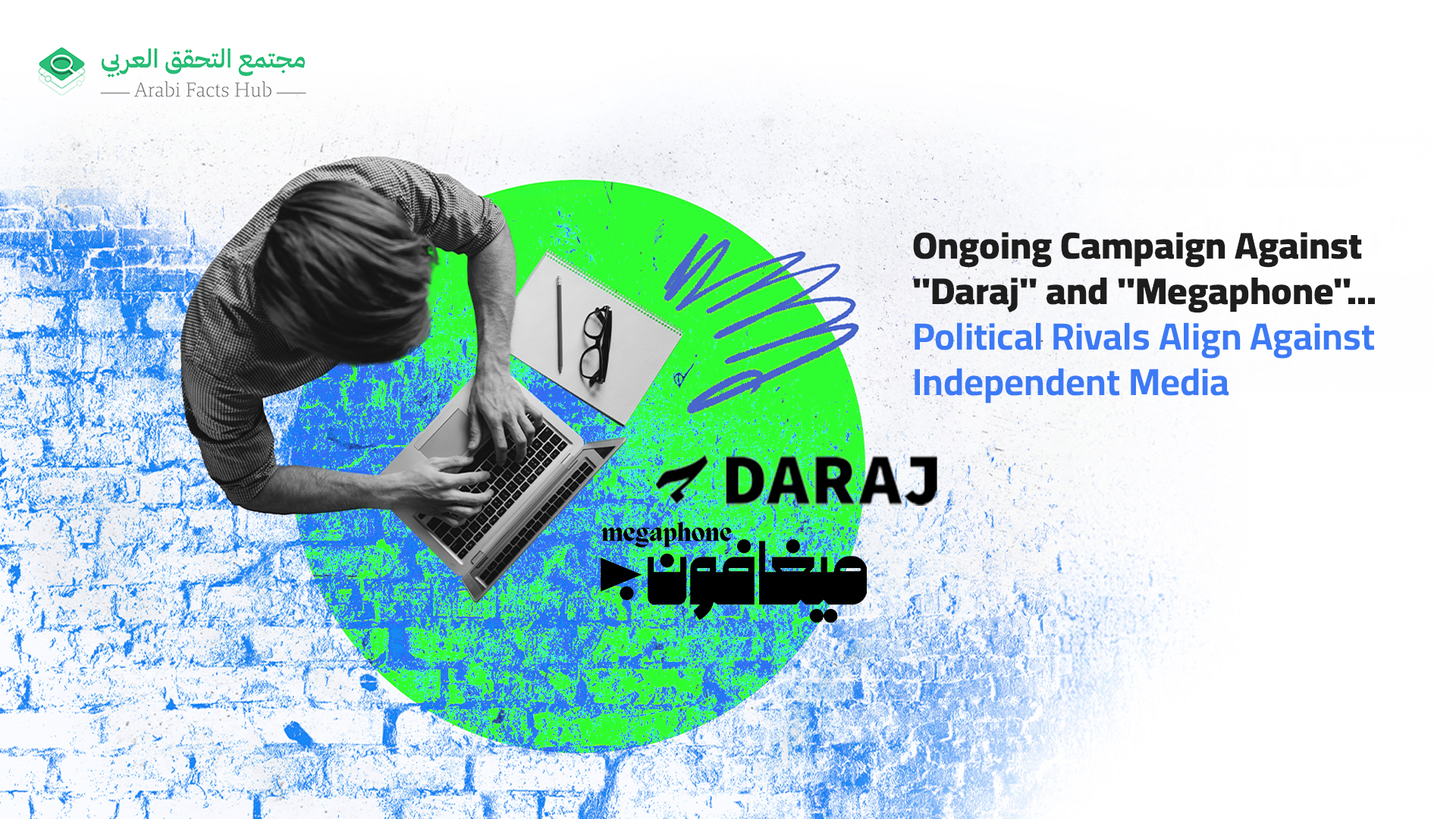
This report examines the ongoing digital campaign targeting online media platforms "Megaphone" and "Daraj," coinciding with a new lawsuit filed against the latter. It analyzes the rhetoric of the campaign and the key narratives it promotes. The campaign has involved a wide range of actors from across the political spectrum in Lebanon—including supporters of the Free Patriotic Movement (FPM), backers of Samir Geagea, advocates of the American right and the Saudi regime, and even supporters of Hezbollah.
The digital platform Daraj has received a third legal summons from the Cybercrimes Bureau, on charges of “damaging Lebanon’s relations with foreign countries” and “inciting racism and sectarian strife.” The lawsuit was filed by banker Antoun Sehnaoui in response to a report published by Daraj in March 2025, titled “Daraj Targeted by Antoun Sehnaoui’s Media Arms… Why?” The article was a follow-up to a series of investigative reports by Daraj that examined Sehnaoui, along with other banking figures and influential individuals. In its report, Daraj refuted allegations suggesting that it had contributed to Lebanon’s ongoing banking and financial crisis.
.png)
Prior to this third lawsuit, the legal actions filed by Sehnaoui were accompanied by a smear campaign led by television channels affiliated with him, as well as media figures close to a group of Lebanese bankers, journalists tied to the FPM, and other organizations such as the Depositors’ Cry Association.
Arabi Facts Hub (AFH) previously investigated this digital campaign, revealing the main accounts involved and how fake or inactive accounts helped amplify it by spreading disinformation aimed at discrediting the Daraj and Megaphone.
An Old Digital Campaign and a New Lawsuit
In May 2025, before the Daraj team was summoned to the Cybercrimes Bureau in Beirut, online discourse surrounding Daraj and the organization “Kulluna Irada” intensified. Prior accusations that were directed against the platform began to resurface in new posts.—alleging that Daraj receives “suspicious” funding, belongs to the “destructive left,” and seeks to erase depositors’ funds from the banks.
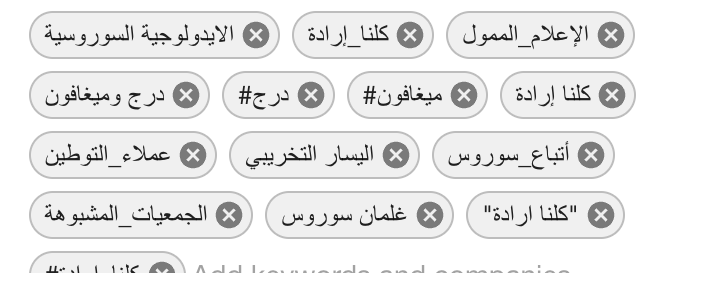
We utilized a list of the most frequently used keywords to ensure broad and horizontal coverage of all types of discourse surrounding the organization Kulluna Irada and the platforms Daraj and Megaphone across various social media platforms.
Preliminary analysis from Meltwater indicated that the spike in the number of posts during May was linked to Lebanon’s municipal elections, which began on May 4, 2025. The first and second peaks in post volume occurred on May 7 and May 9, respectively—just ahead of the polling in the North and Akkar governorates on May 11.
The highest peak came on May 13, before the scheduled elections in Beirut, Baalbek, and Hermel on May 18. A fourth spike in volume occurred on May 19, ahead of the elections in Nabatieh, which were held on May 24.
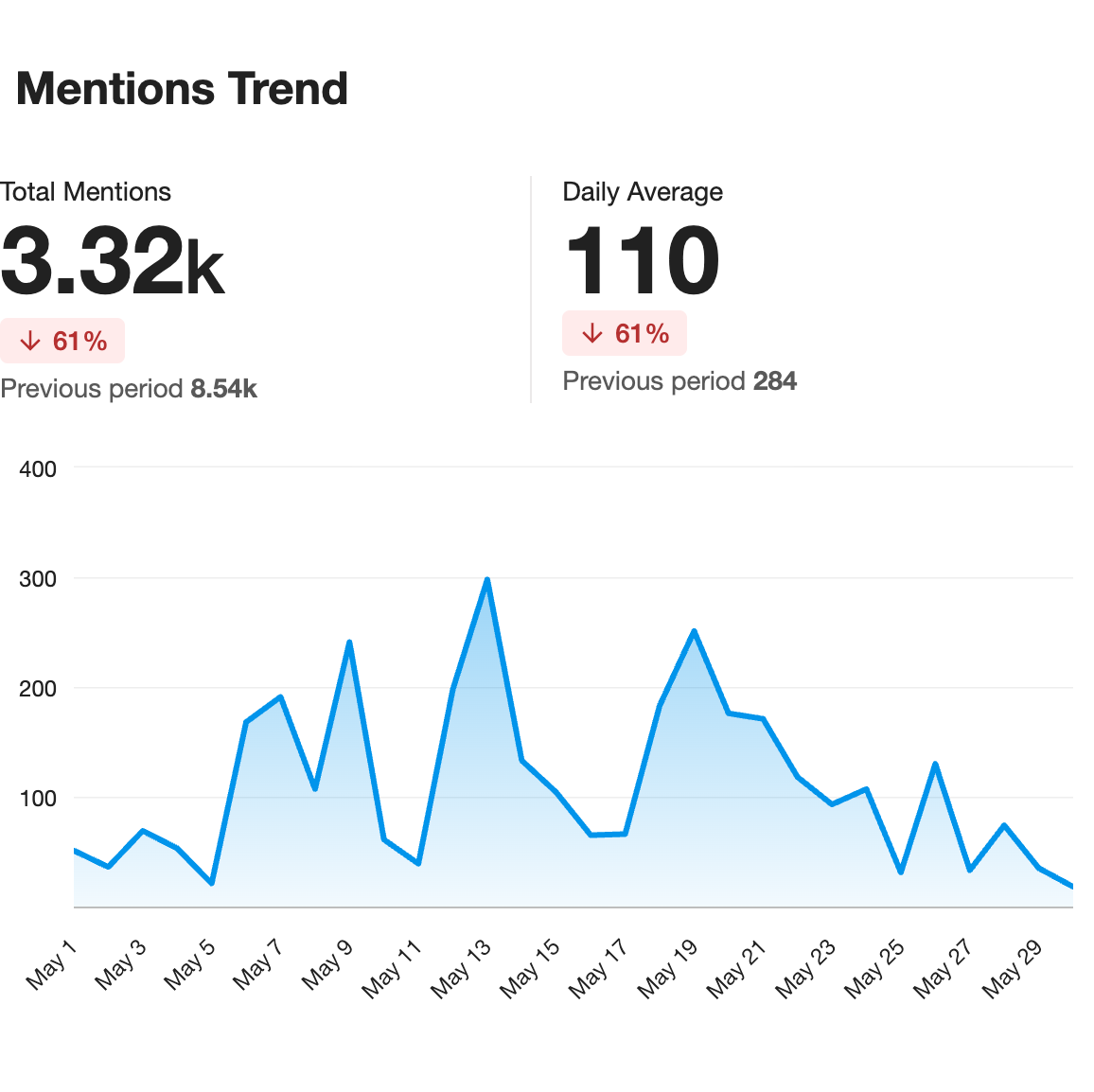
Although posts about Daraj and Kulluna Irada were tied to Lebanon’s political context, the number of views—exceeding 38 million across various platforms—peaked at the end of May. This surge followed the summoning of Daraj’s editorial team and a scheduled interrogation that the platform’s journalists did not attend, following which the home of writer and journalist Wissam Saadeh was raided and he was arrested.
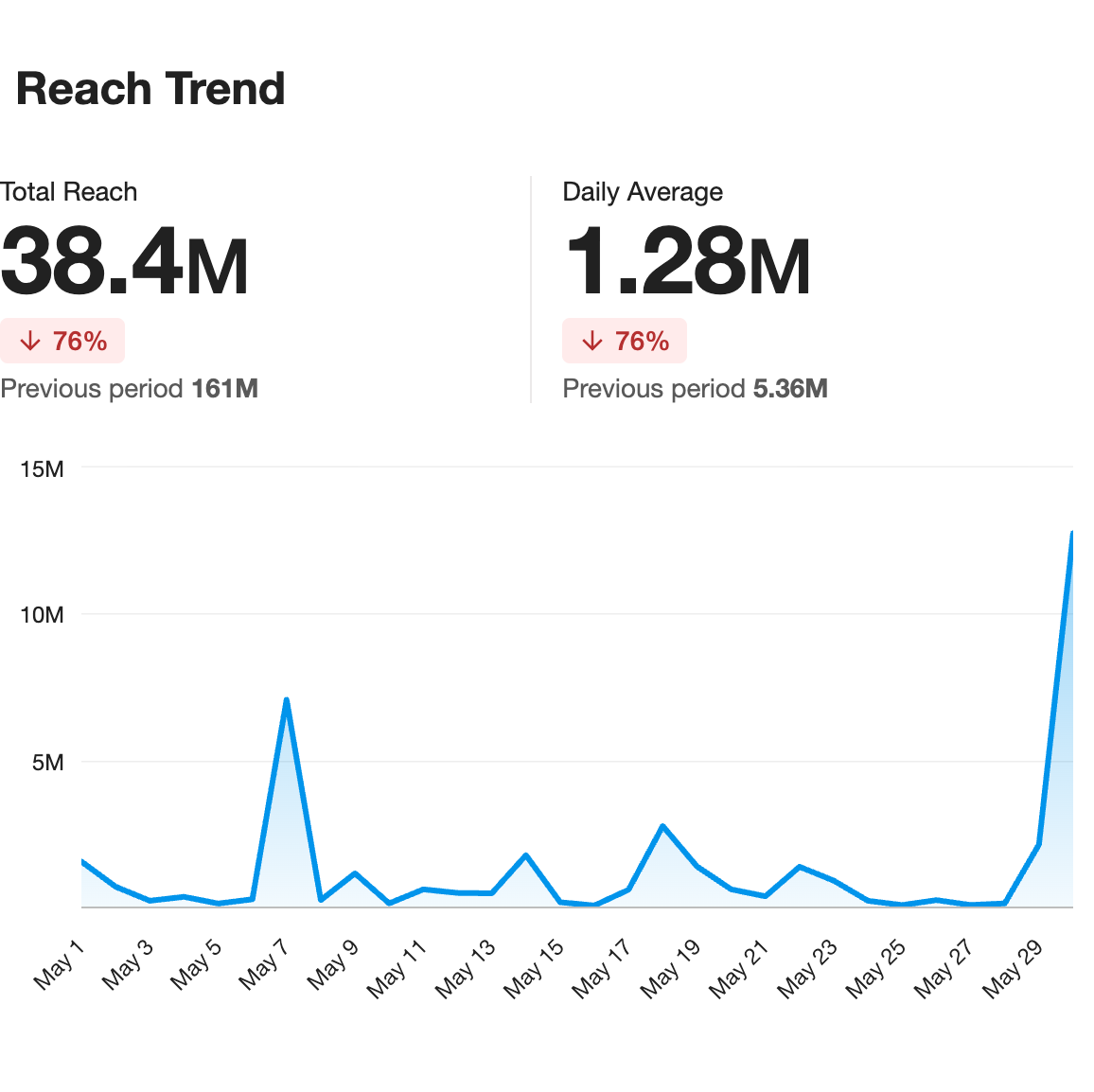
The language and themes of these posts—shaped by Lebanon’s political context—were reflected in the most prominent keywords. Mentions of Daraj, Megaphone, and Kulluna Irada frequently appeared alongside discussions of the banking crisis and depositors’ funds, as well as the names of governorates where municipal elections took place.
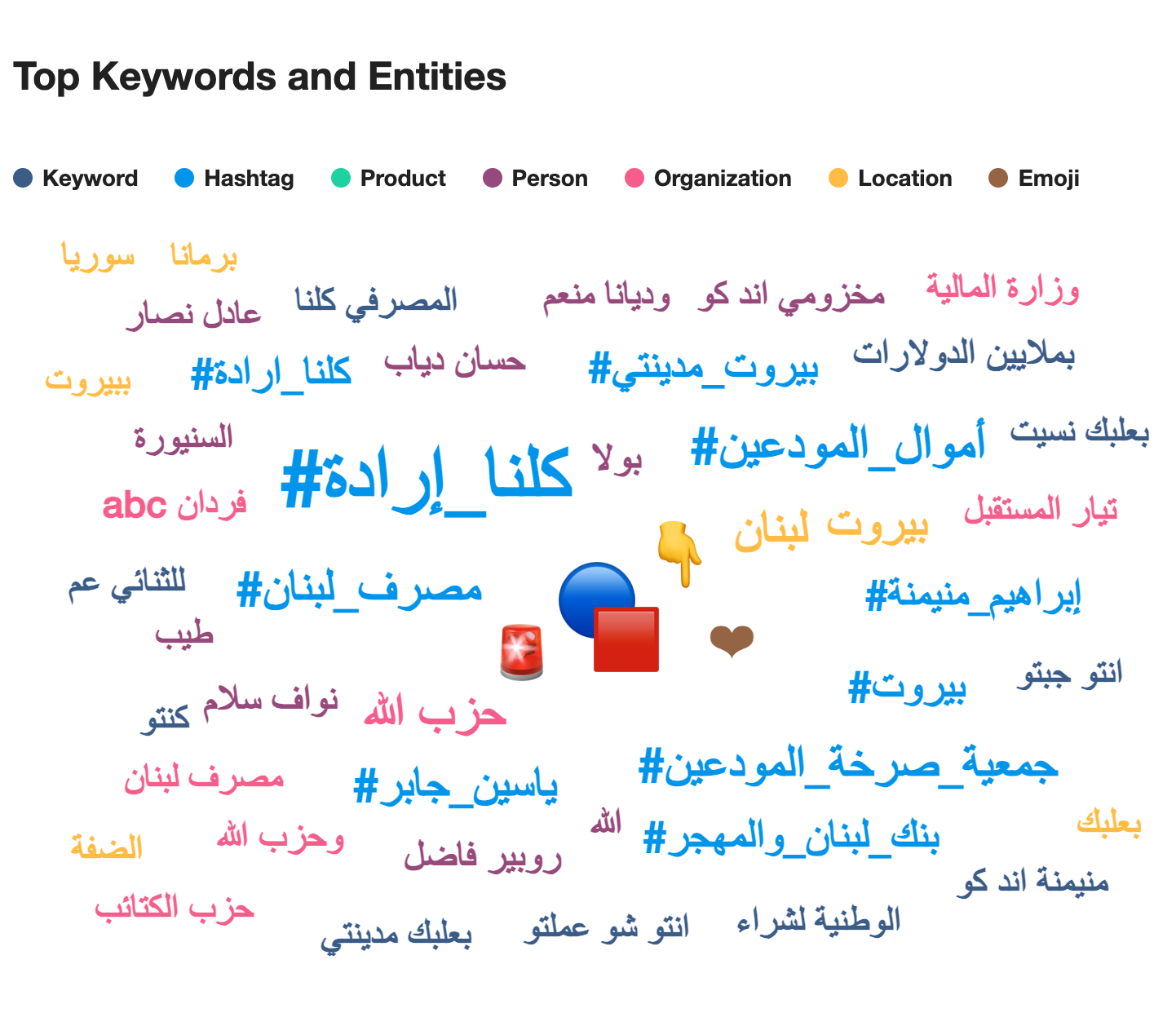
According to Meltwater’s analysis, positive content represented less than 5% of total posts, while negative or hostile content directed at Daraj and Kulluna Irada made up approximately 70%.
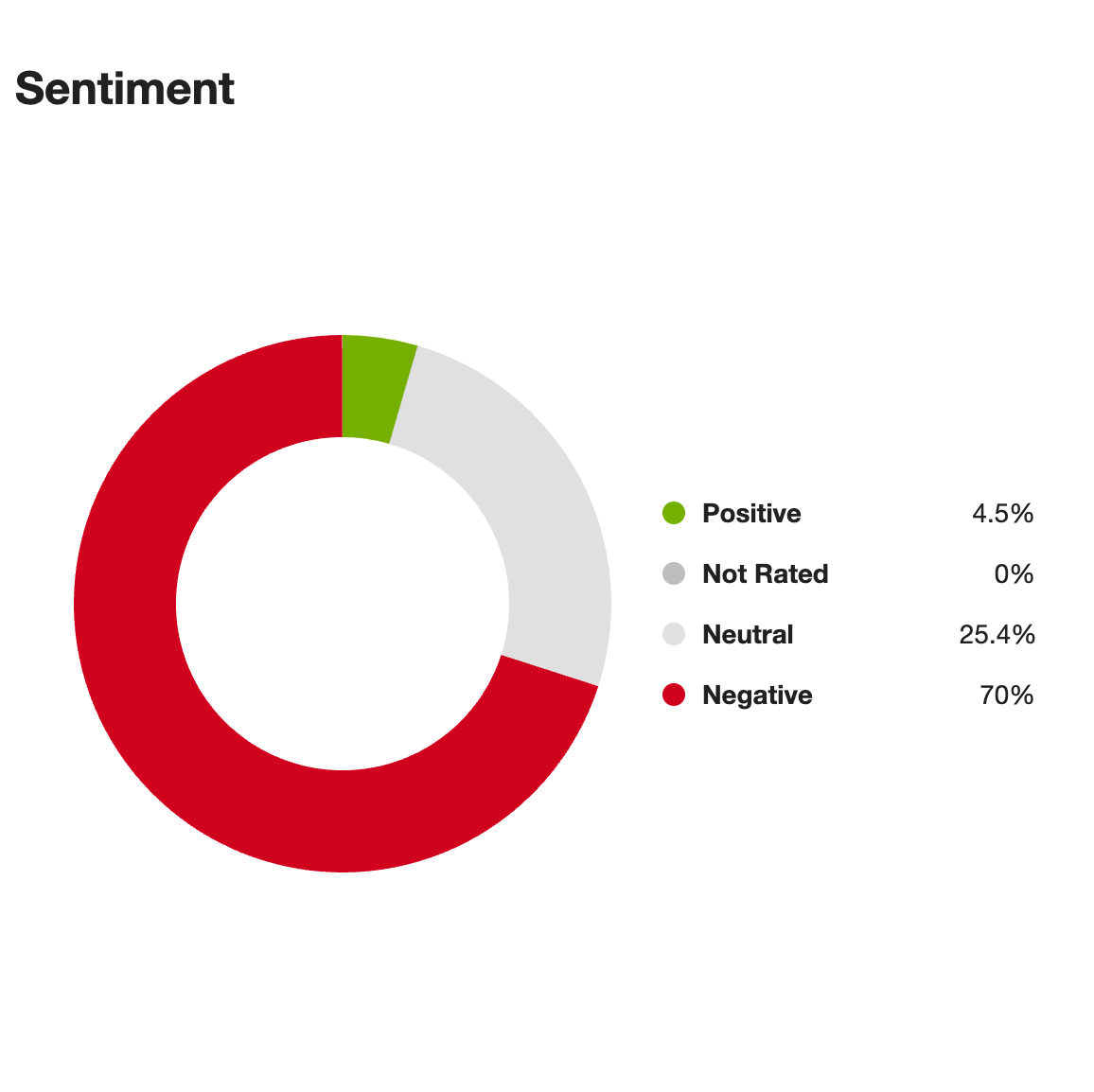
But posts targeting Daraj, Megaphone, and Kulluna Irada did not emerge in May. When we expanded the timeframe of the analysis to cover the entire year of 2025—from the beginning of January through the end of May—a broader trend became evident in the graph, showing a steady rise in the number of posts related to the selected keywords across various social media platforms.
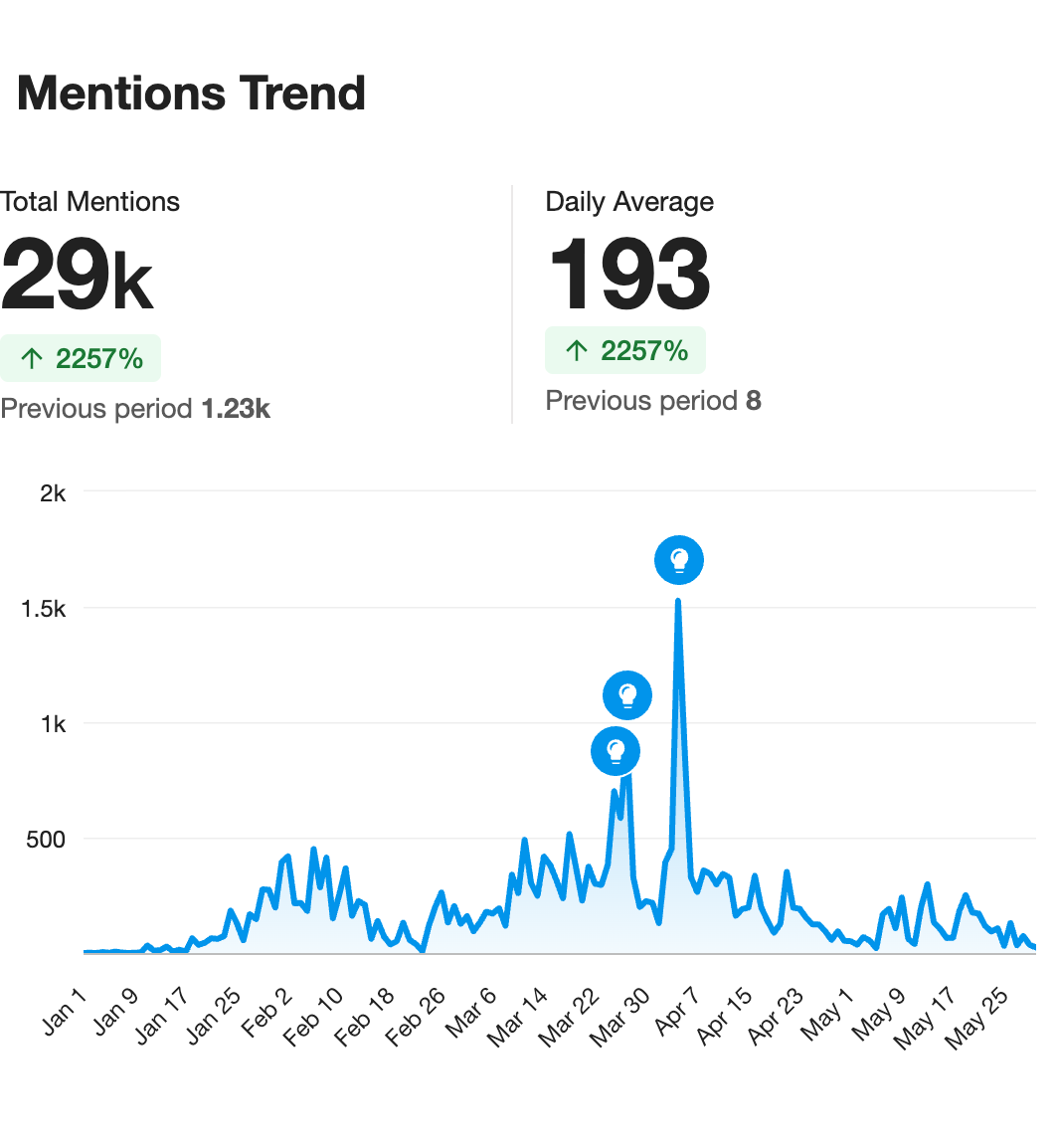
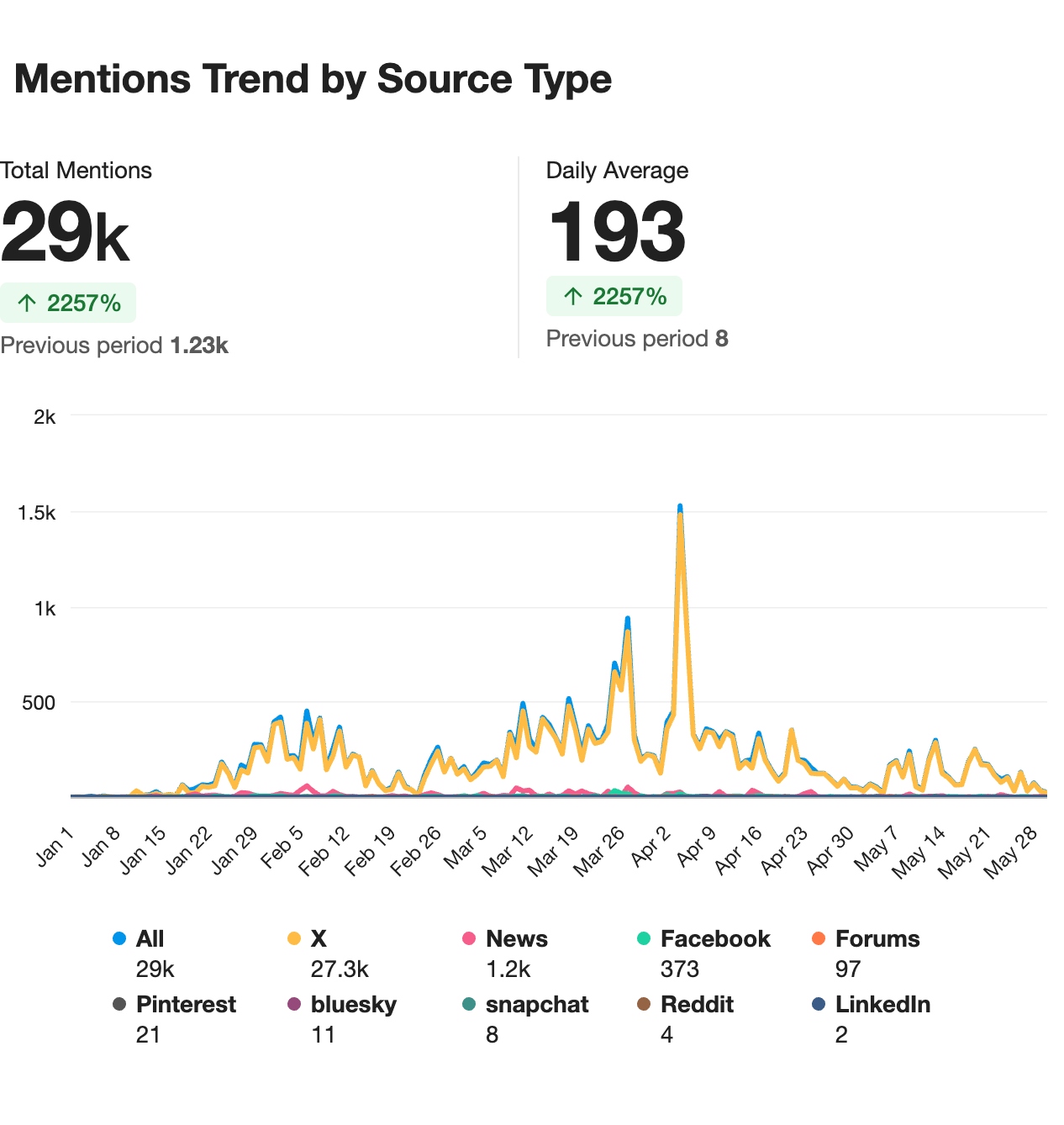
The number of posts related to the campaign first peaked on March 25 and 27, 2025, respectively—coinciding with the appointment of Karim El Souaid as Governor of the Central Bank of Lebanon, succeeding Riad Salameh. This appointment marked the beginning of a digital campaign accusing Kulluna Irada and Daraj of treason. The volume of posts then reached its highest point on April 4, 2025, aligning with the filing of lawsuits against Kulluna Irada, Daraj, and Megaphone. These legal actions were accompanied by accusations of foreign funding, document forgery, and other charges.
.png)
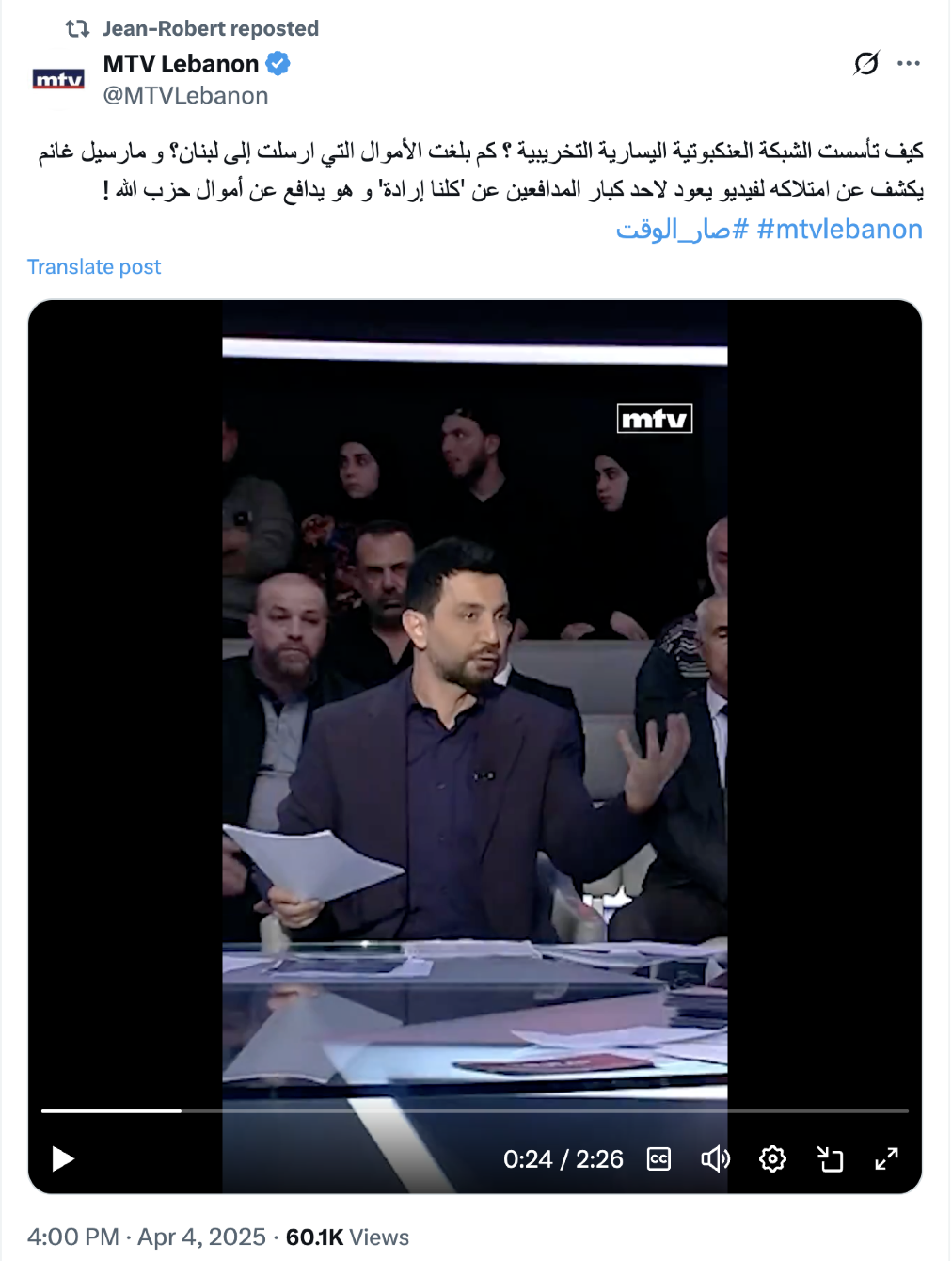
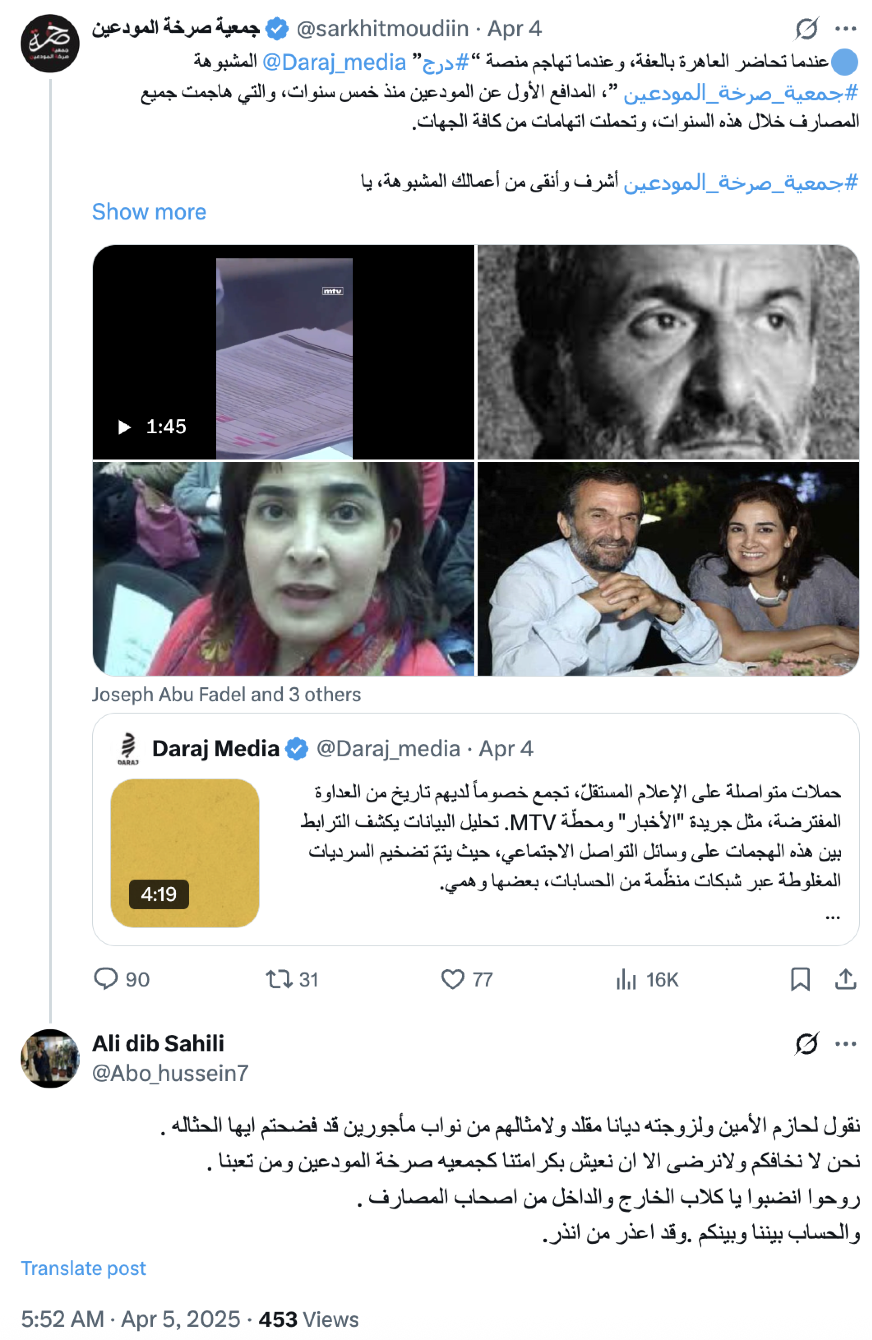
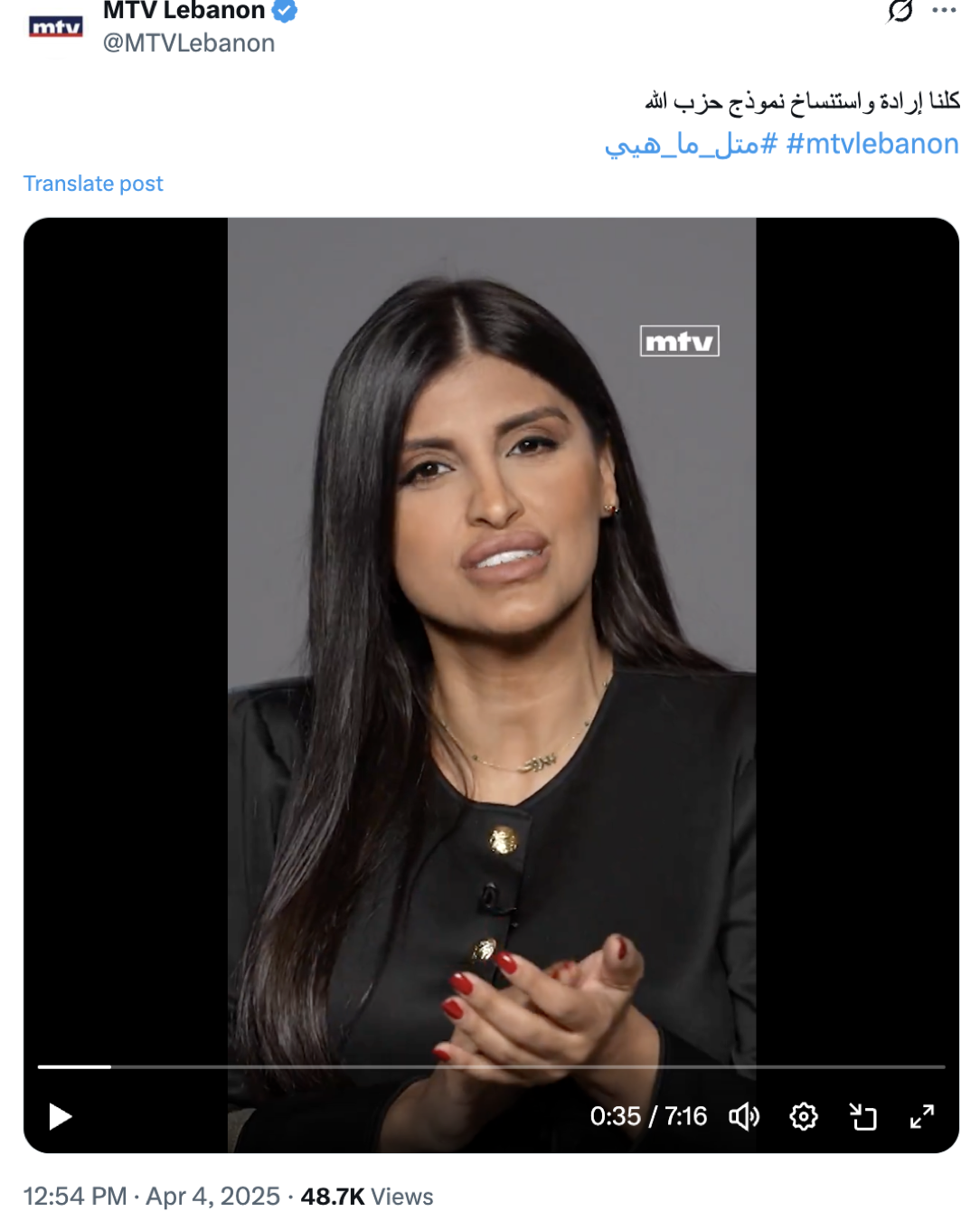
The total number of posts reached around 29,000, but the number of impressions was exponentially higher at approximately 396 million, averaging 2.064 million per day. These figures are clearly signs of artificial content amplification.
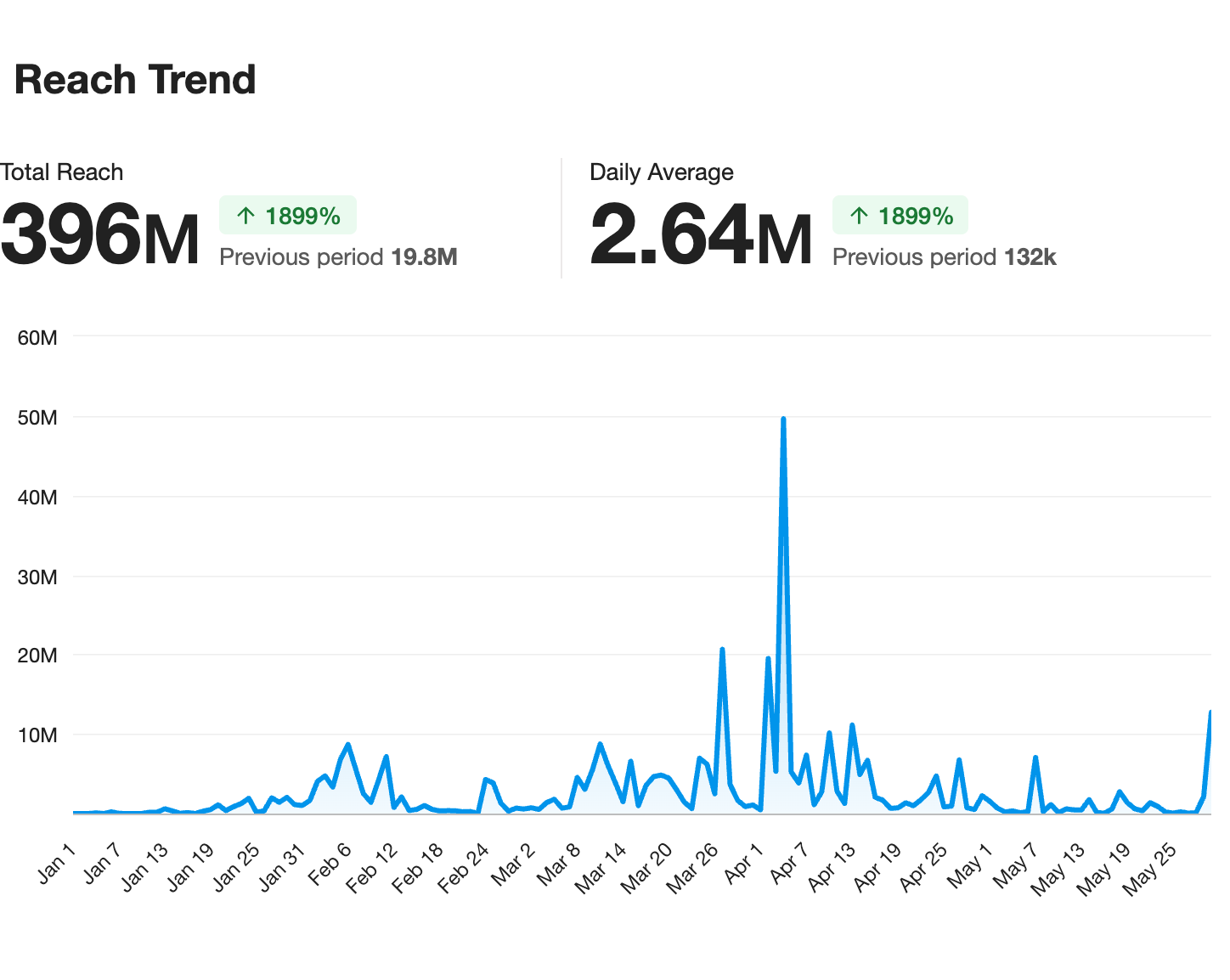
These indicators were reflected in the analysis of posting and engagement patterns on X. Retweets and quote posts together accounted for approximately 60% of all campaign-related content, while comments made up about 33%. In contrast, original content represented only around 7% of the total posts—highlighting a campaign driven primarily by amplification rather than the creation of new material.
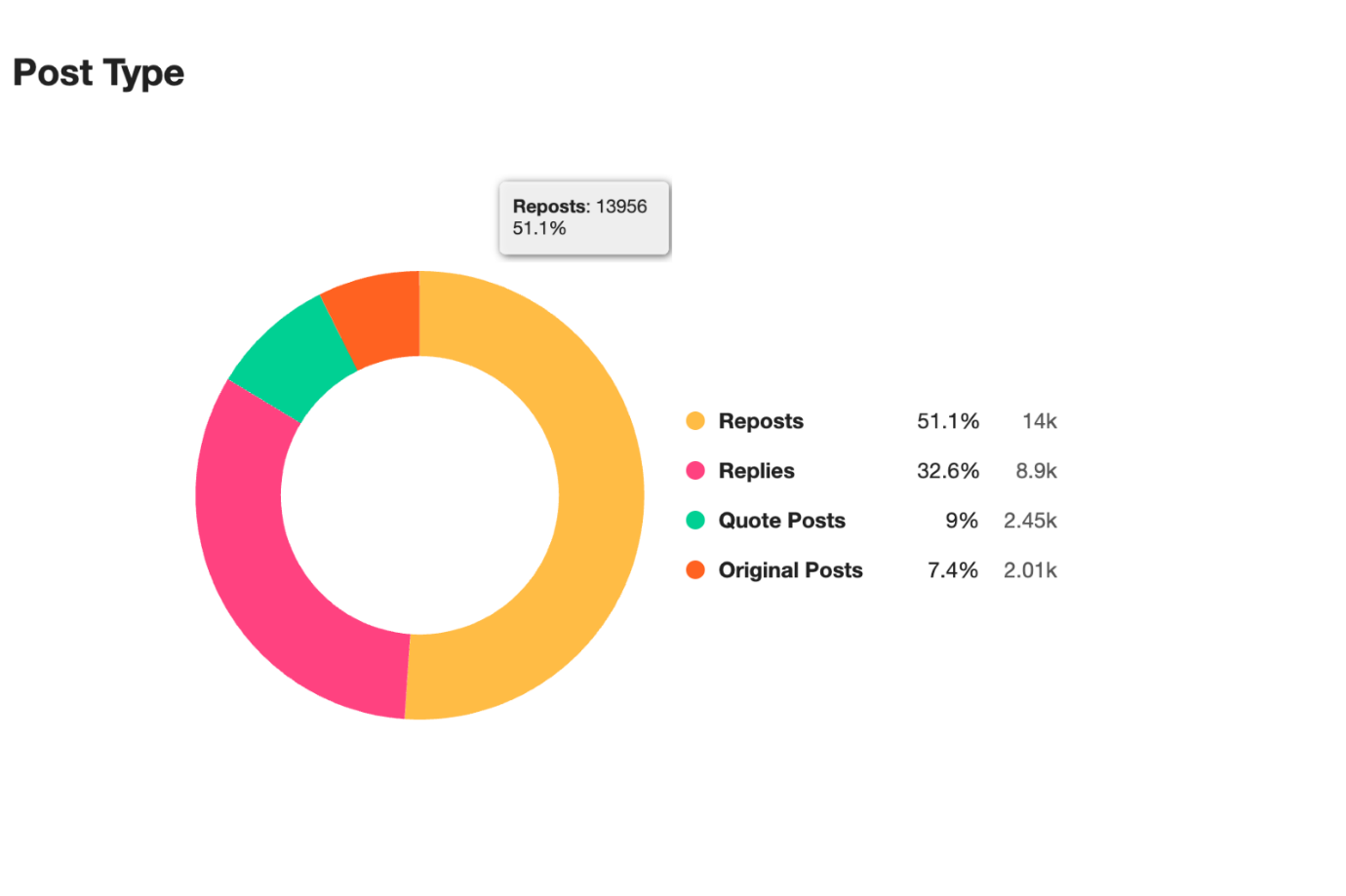
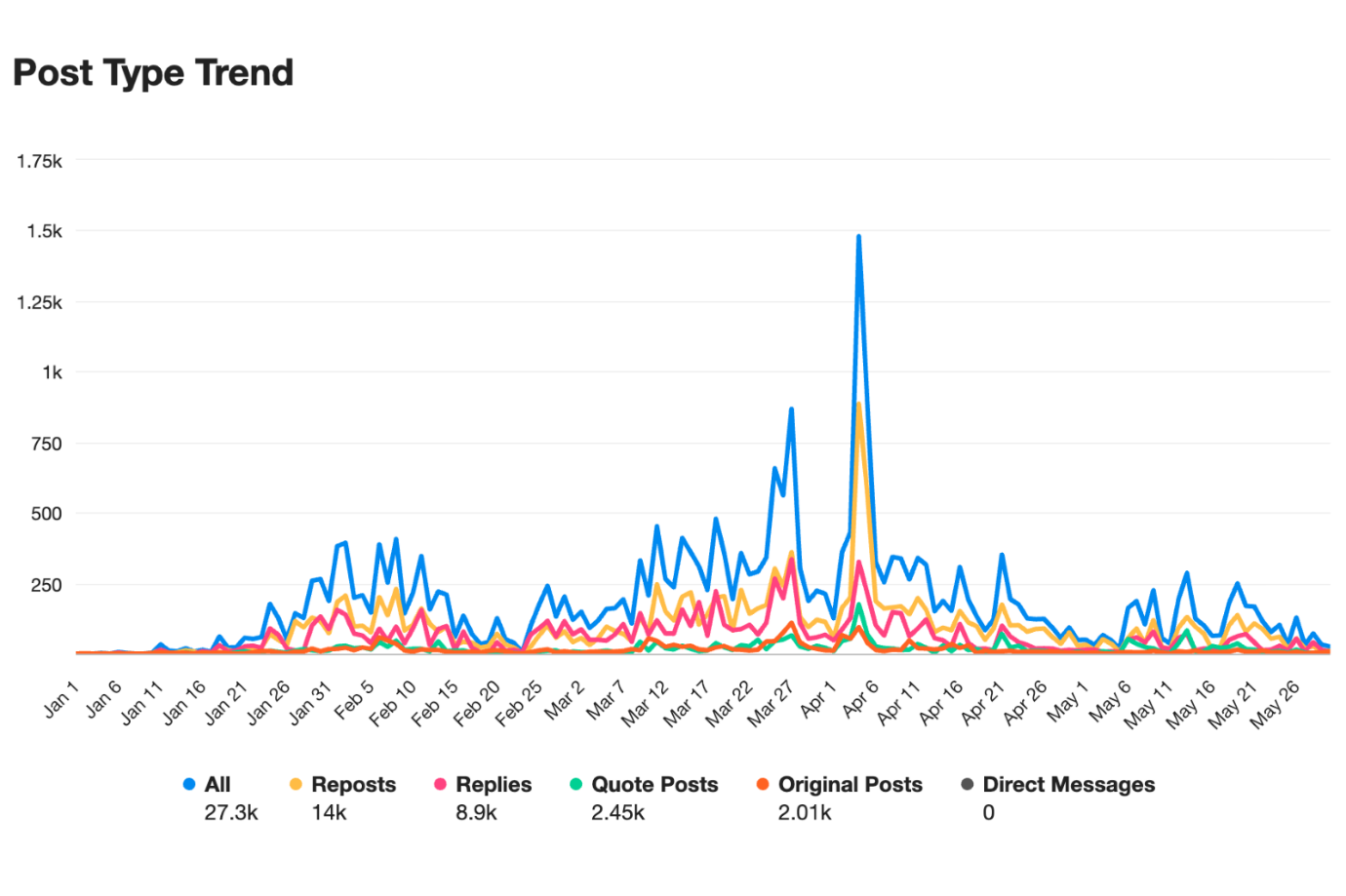
The word cloud of the most frequently appearing terms in posts from January through the end of May 2025 showed little variation from that of May alone. This suggests a sustained campaign characterized by deliberate replication and reposting of content. Such uniformity deviates from typical human engagement patterns, which typically evolve—especially over a five-month period.
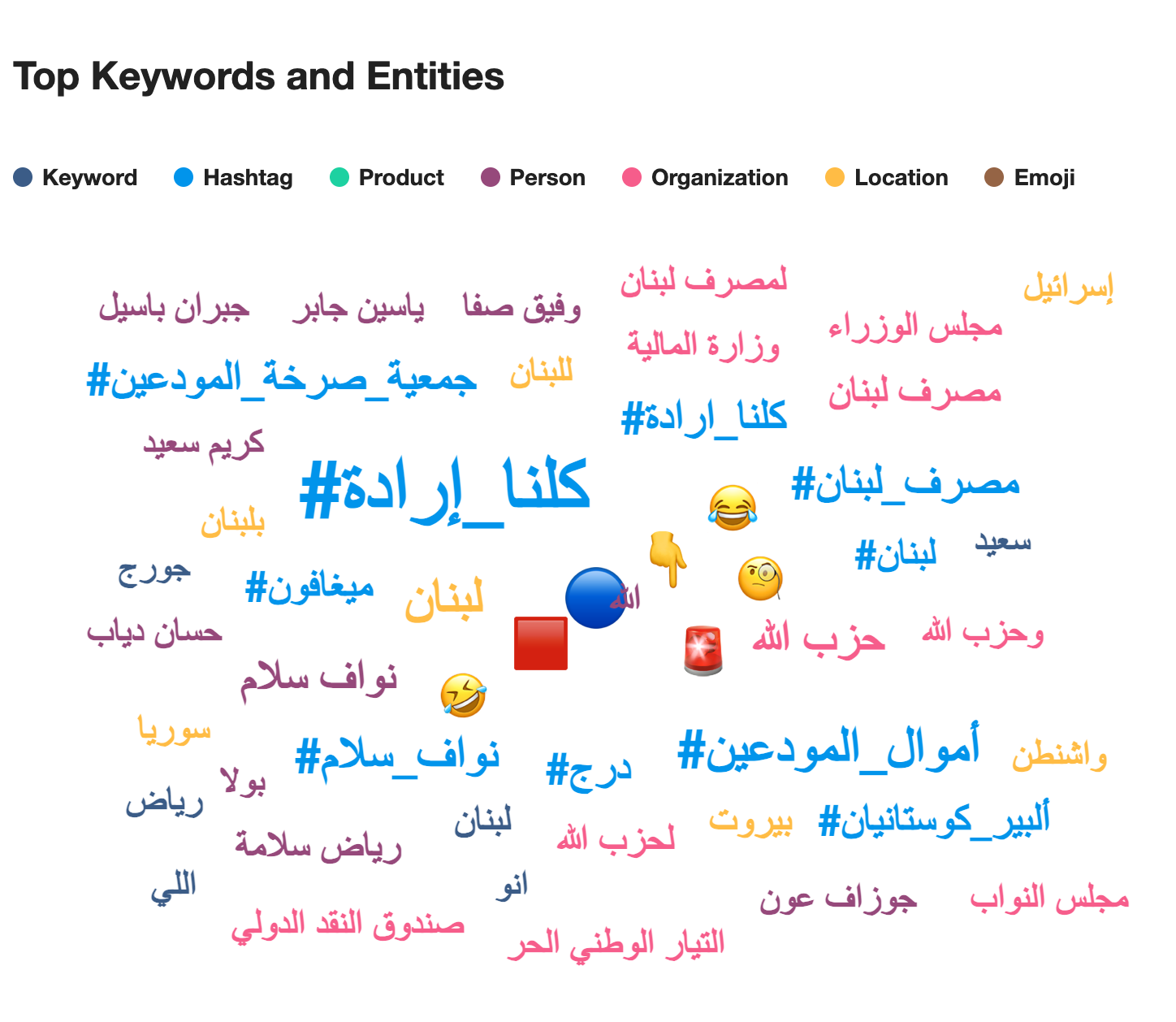
The list of hashtags associated with the posts reflected the same themes seen in the word cloud, linking the accusations against Kulluna Irada, Daraj, and Megaphone to issues concerning the banking sector and depositors’ funds. The names of several public figures also stood out, including Joseph Abu Fadel, Albert Kostanian, and Karim Souaid.
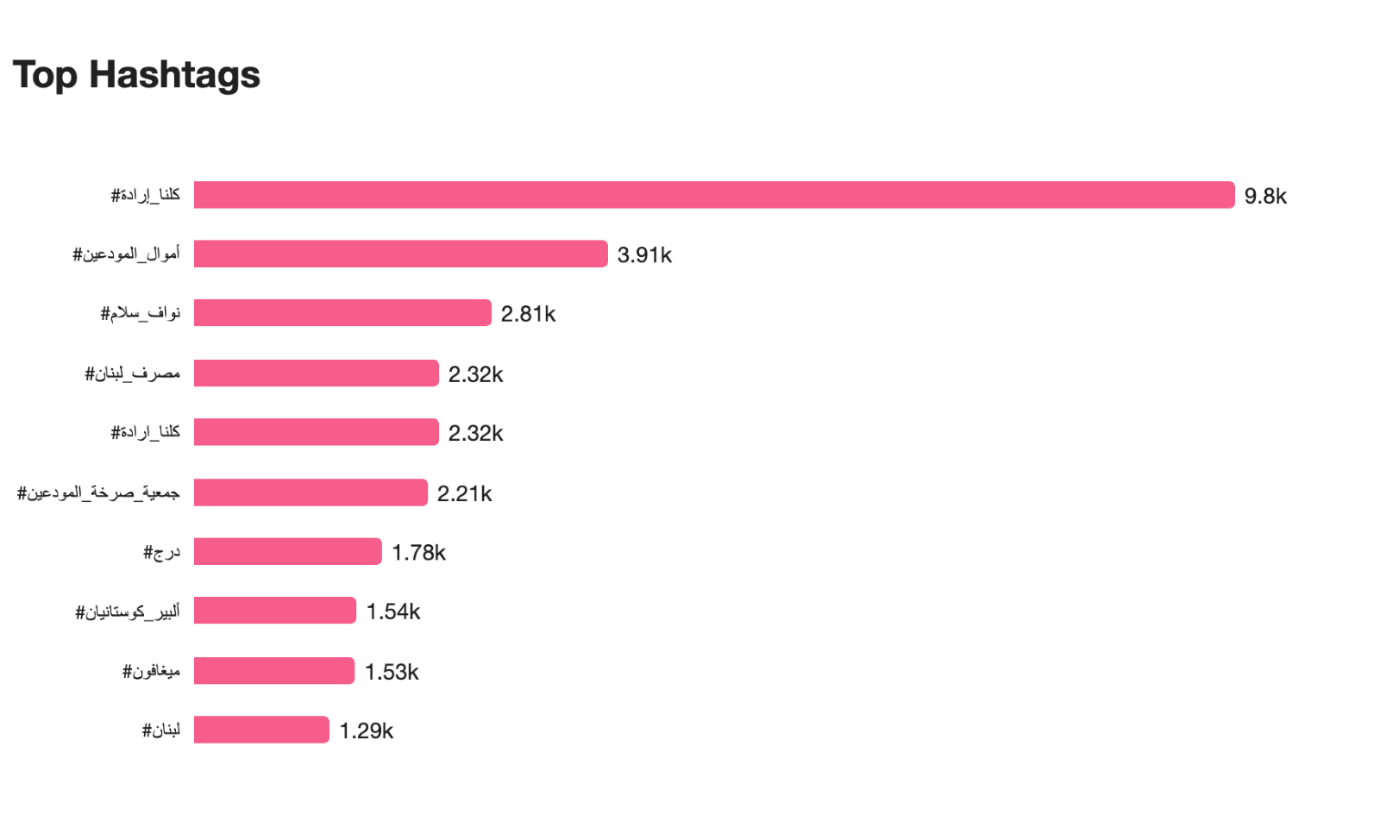
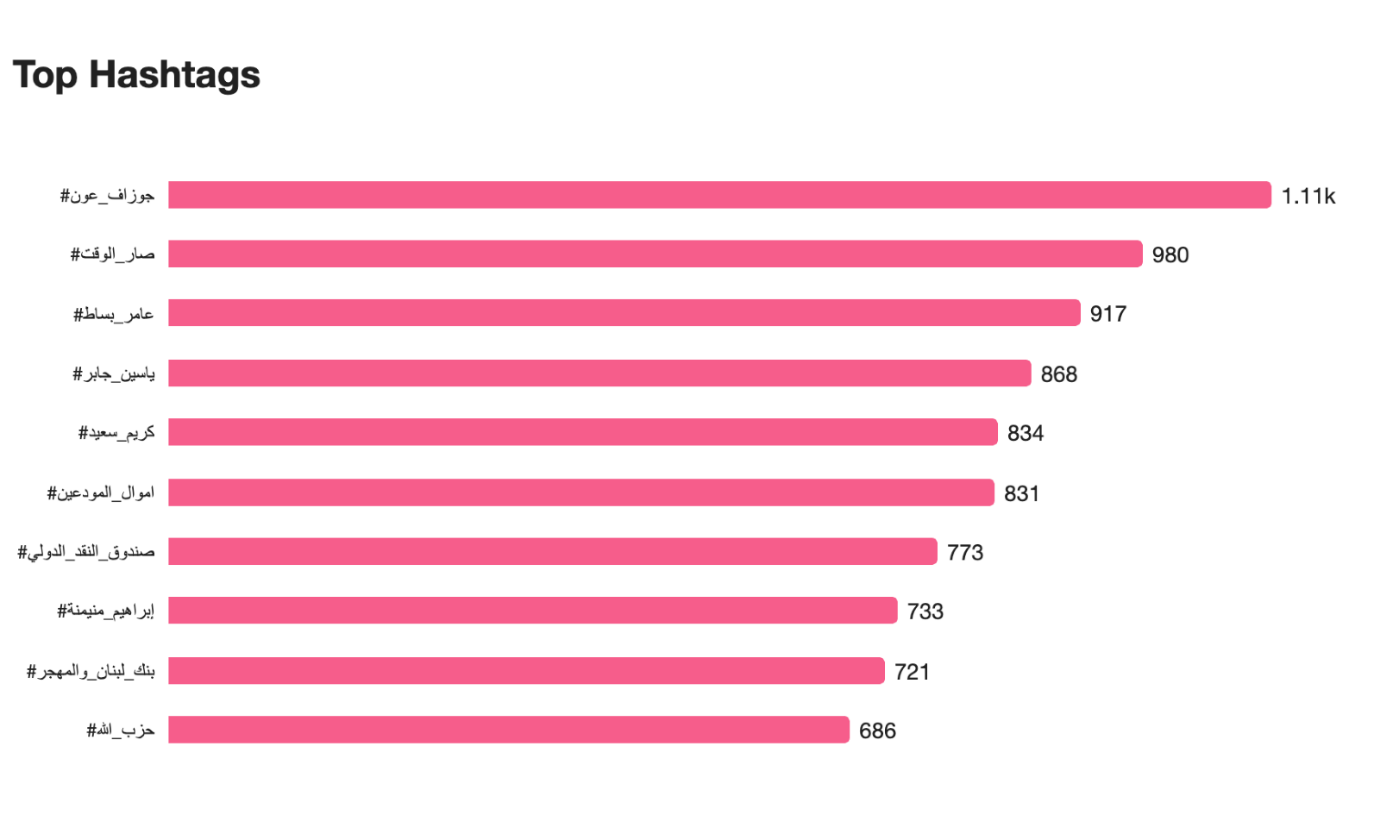
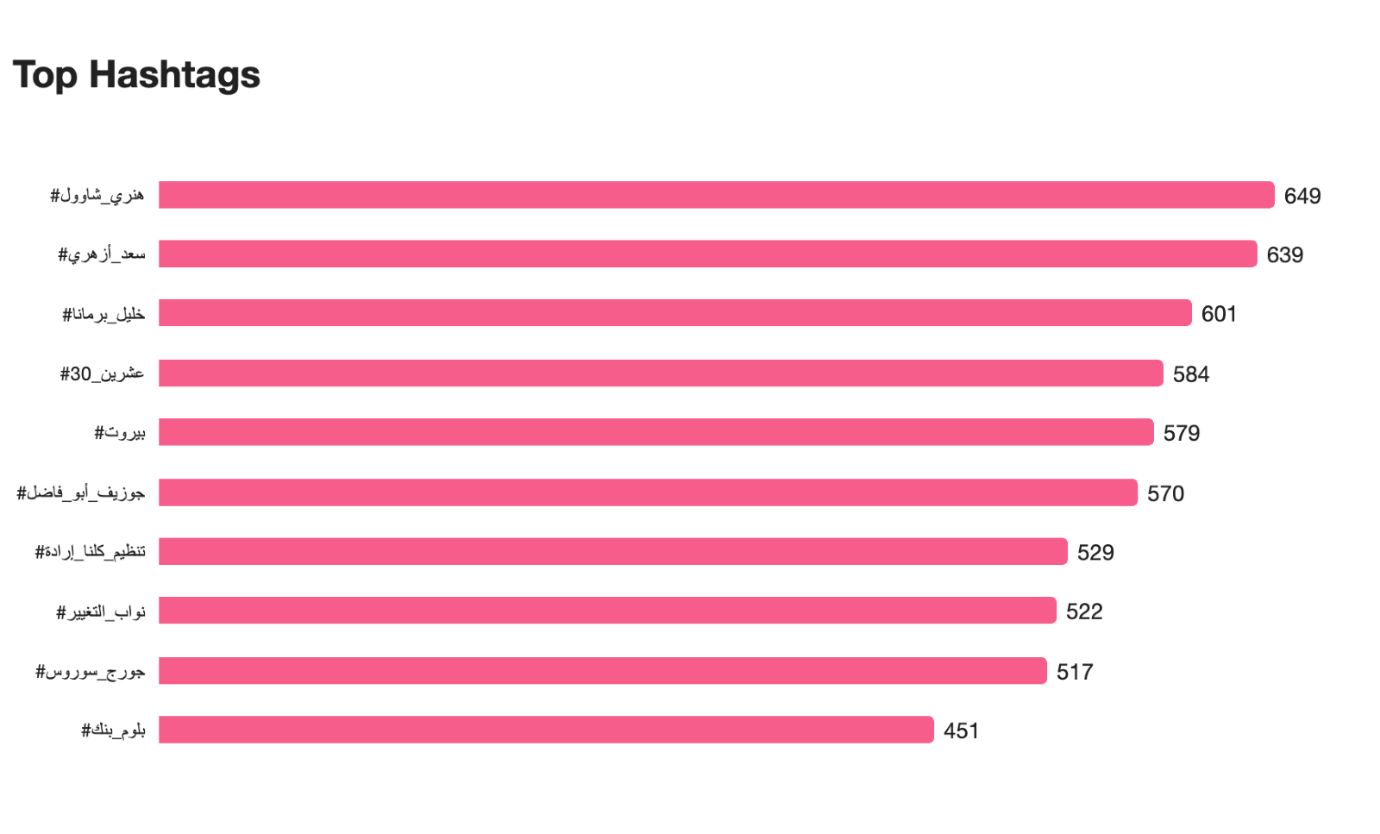
The majority of the posts were part of a coordinated attack (negative content) targeting Kulluna Irada. Most of the accounts engaging in the conversation tweeted from Lebanon, which ranked first among countries. The United States came in a distant second, with many accounts claiming to be depositors in Lebanese banks. Saudi Arabia followed in third place, also with a notable but significantly smaller share.
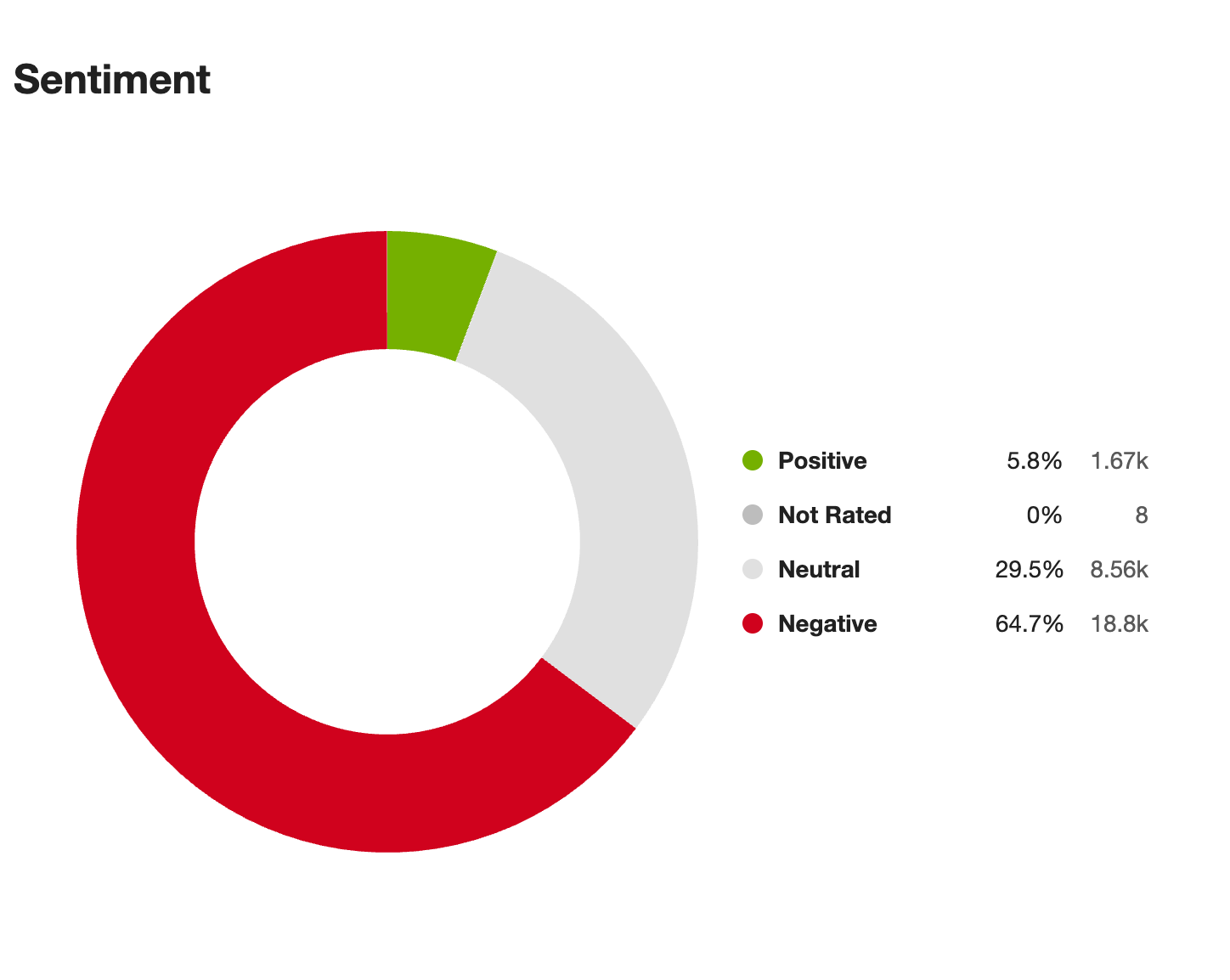
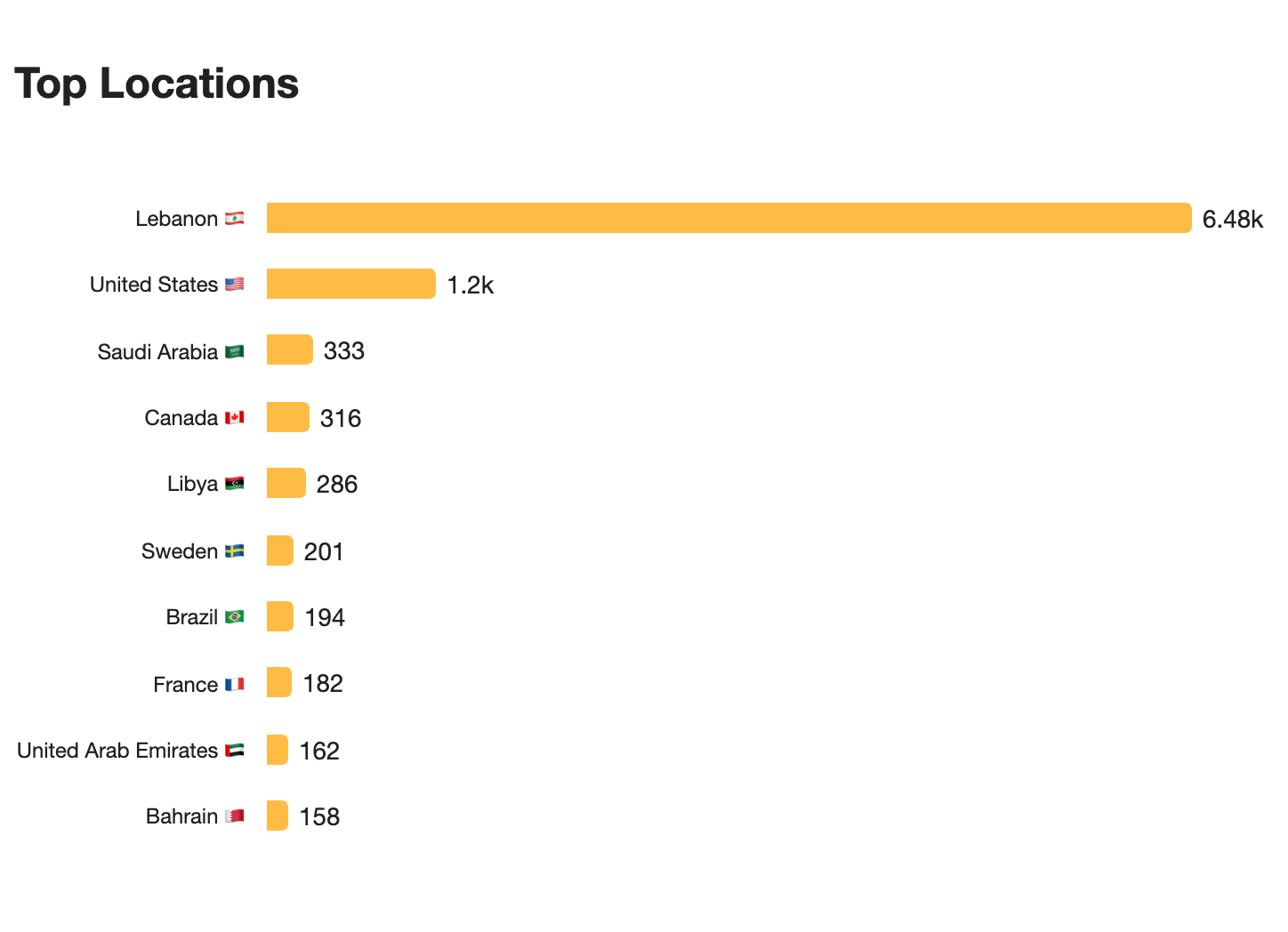
Accounts Involved in the Campaign
A total of 5,280 accounts on X participated in the campaign against Daraj, Megaphone, and Kulluna Irada. Joseph Abu Fadel's (@AbuAbufadel) account was identified as the most active in the campaign. Analysis revealed a total of 34 posts, including reposts and comments, from this account which were related to Daraj, Megaphone, and Kulluna Irada.
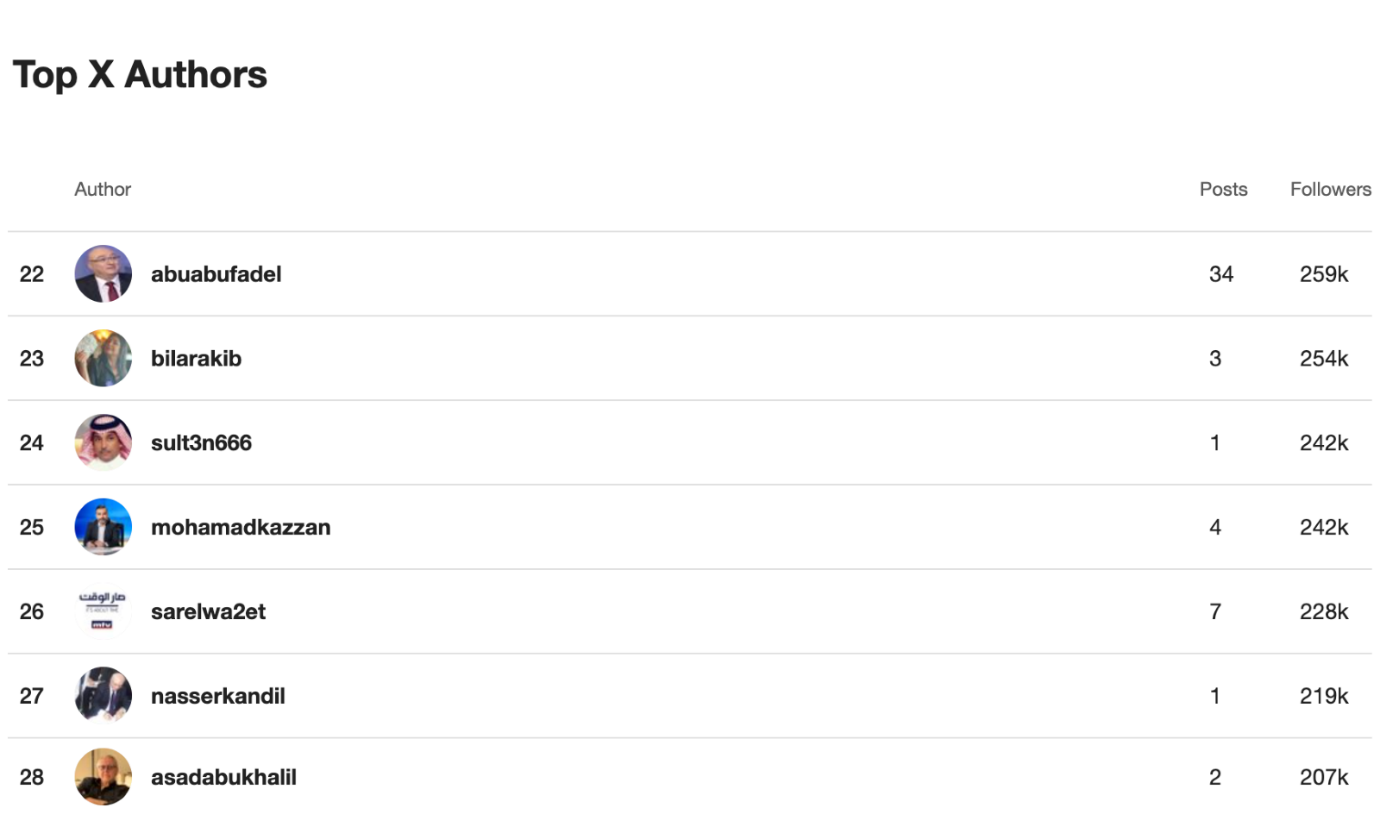
Joseph Abu Fadel is a Lebanese lawyer who was previously known for being close to the "resistance axis," which includes Hezbollah and the Syrian regime. However, in recent years, his positions have shifted significantly, moving from support of the Syria/Hezbollah axis to open criticism. He is also known for his alignment with the right-wing bloc in Lebanon.
On February 1, 2025, Abu Fadel reposted a publication from the account of the Depositors’ Cry Association, accusing Kulluna Irada of working to sabotage Lebanon. The post also explicitly incited, and used hate speech, against Jean Kassir, co-founder and general director of Megaphone and a political activist known for his progressive views and opposition to Lebanon’s sectarian political establishment.
.png)
On March 6, 2025, Abu Fadel commented on another post by the Depositors’ Cry Association, in which the association accused Kulluna Irada of corruption and of using bribery during the parliamentary elections.
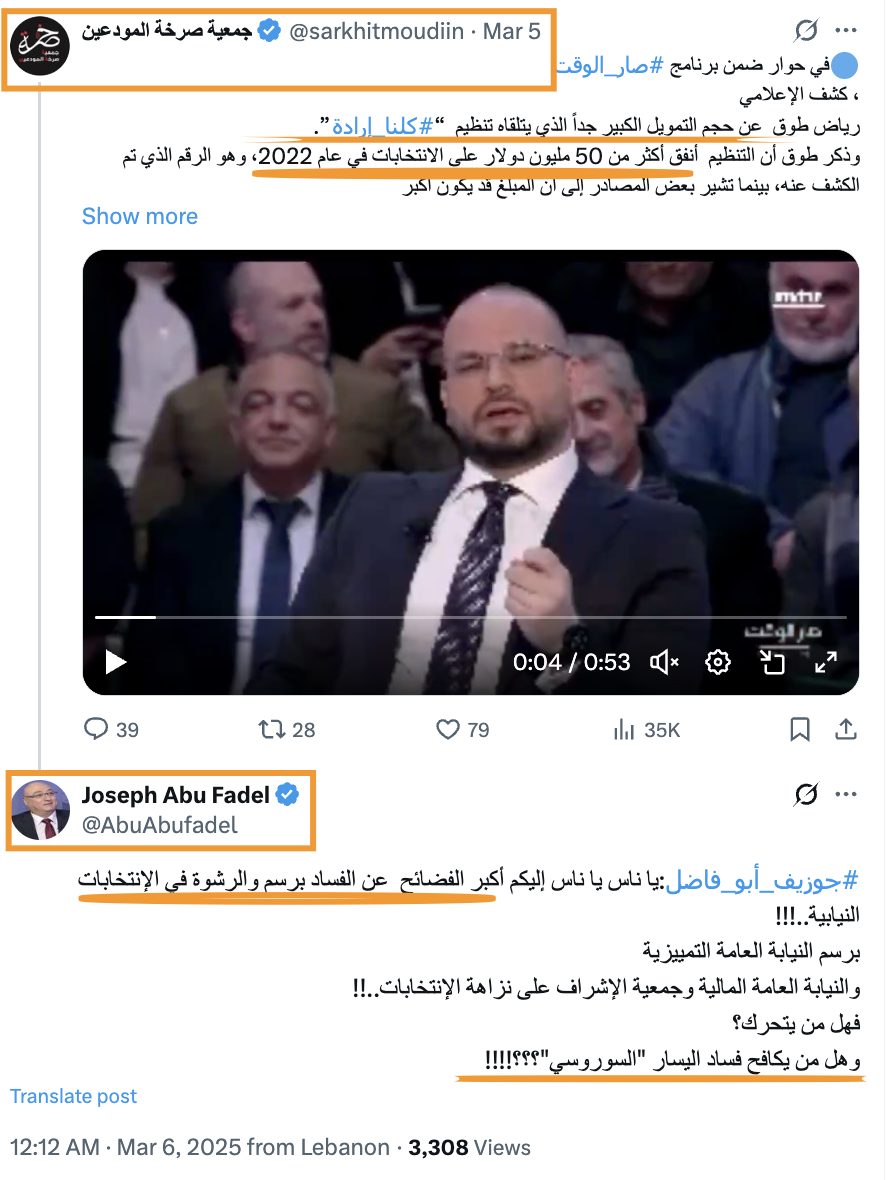
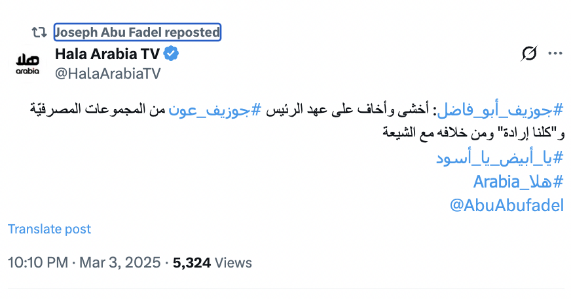
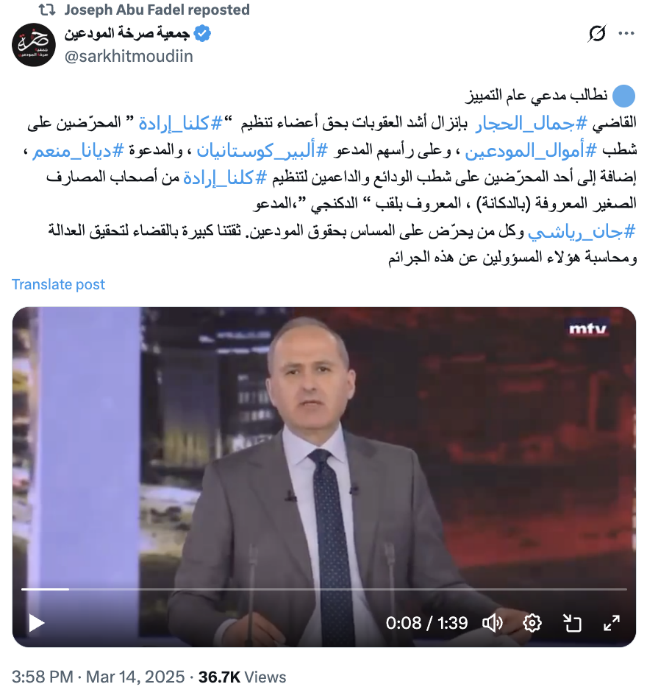
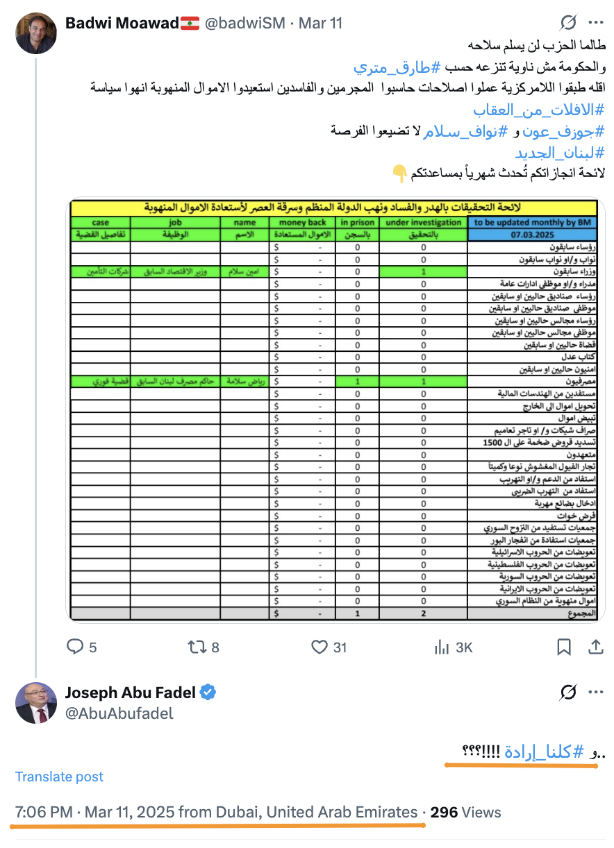
Several television channels also took part in the campaign, including MTV, Lebanon Debate, and Al-Jaras magazine—an entertainment news outlet founded by Lebanese journalist Nidal Al Ahmadieh, known for her support of Bashar Al Assad. These platforms echoed the same accusations and adopted an inciting tone against Kulluna Irada, Daraj and Megaphone.

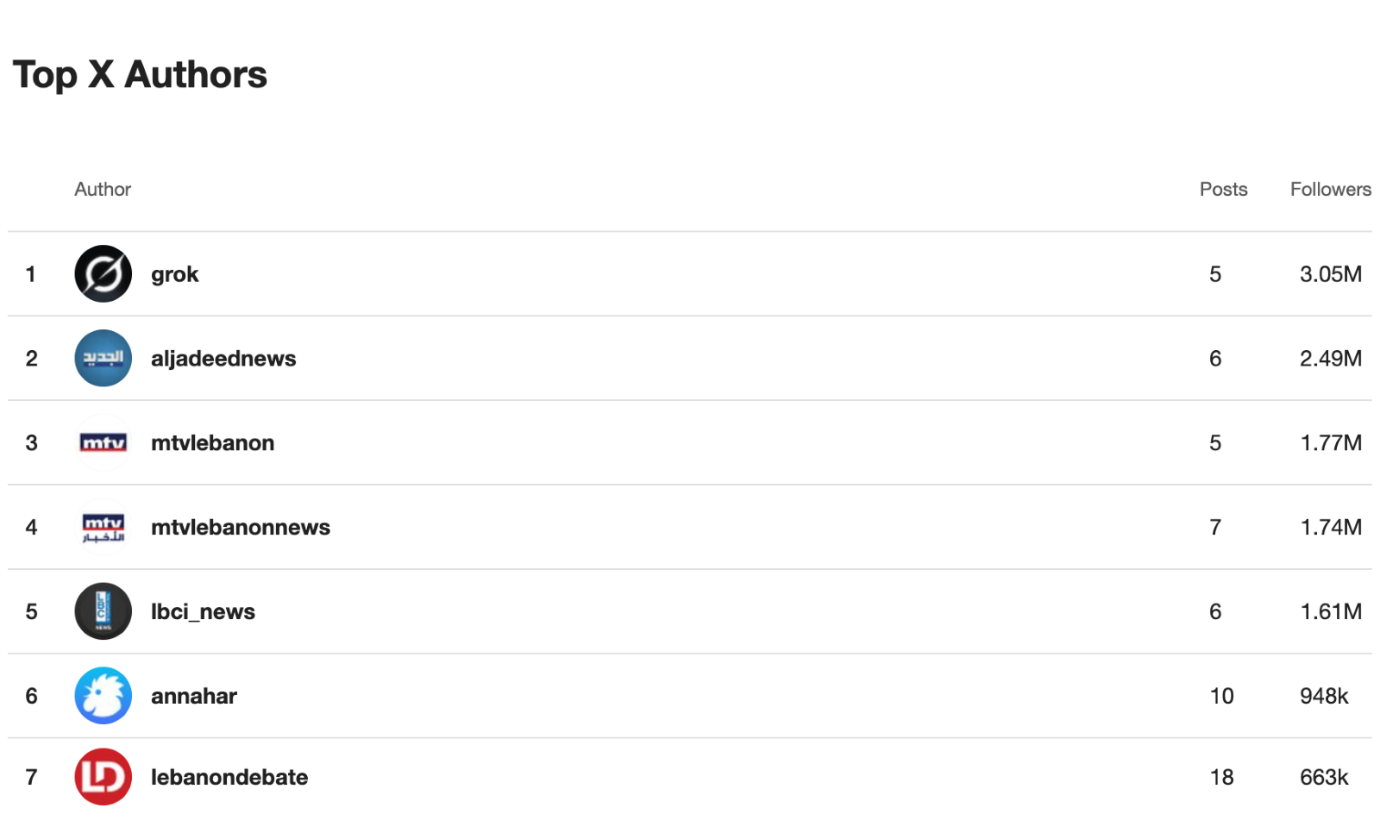
MTV Lebanon described Kulluna Irada in a post as a “destructive project” committing “serious legal violations.”
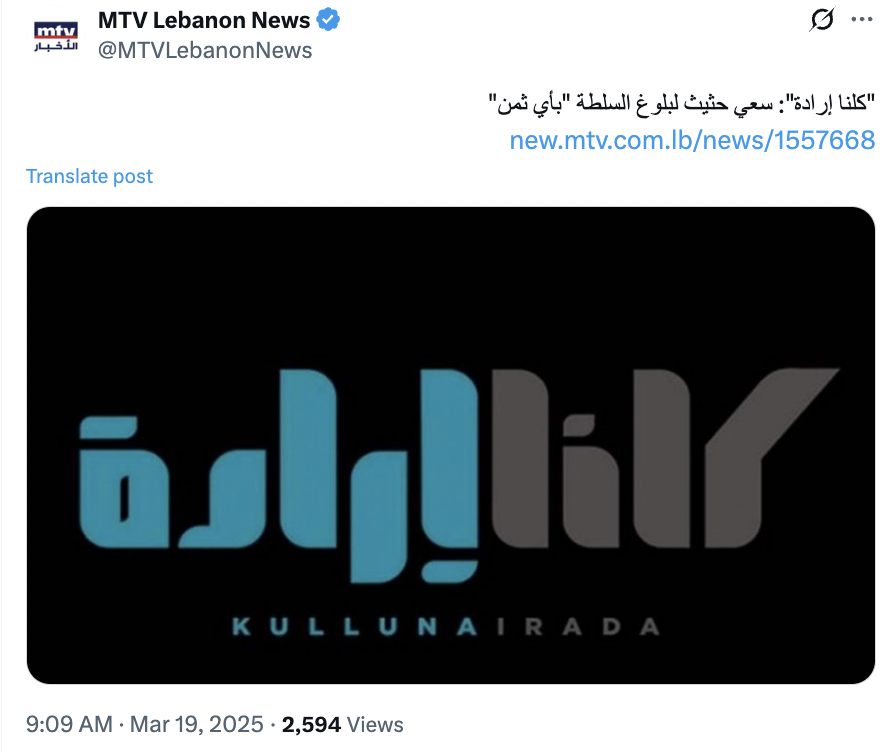
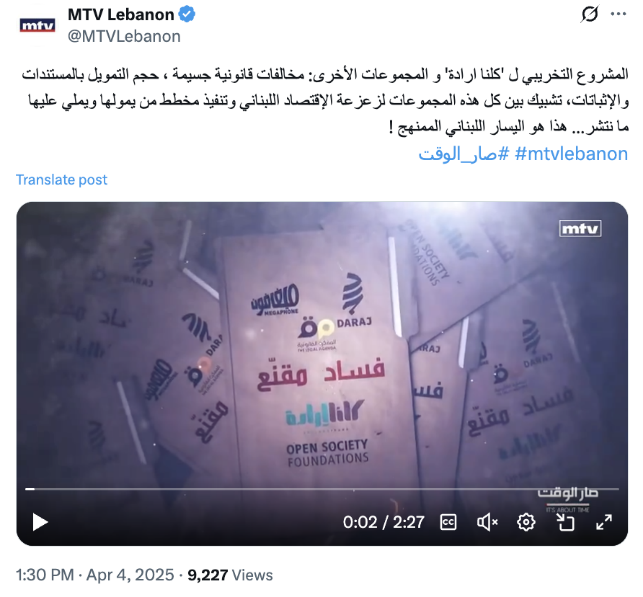
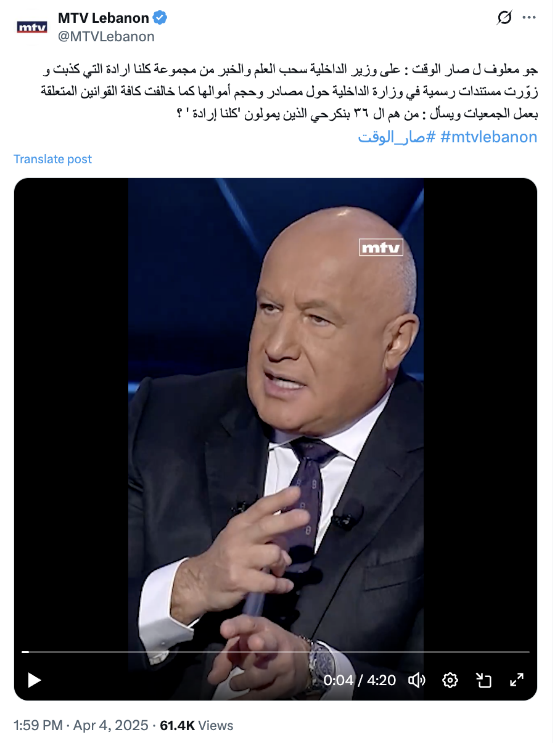
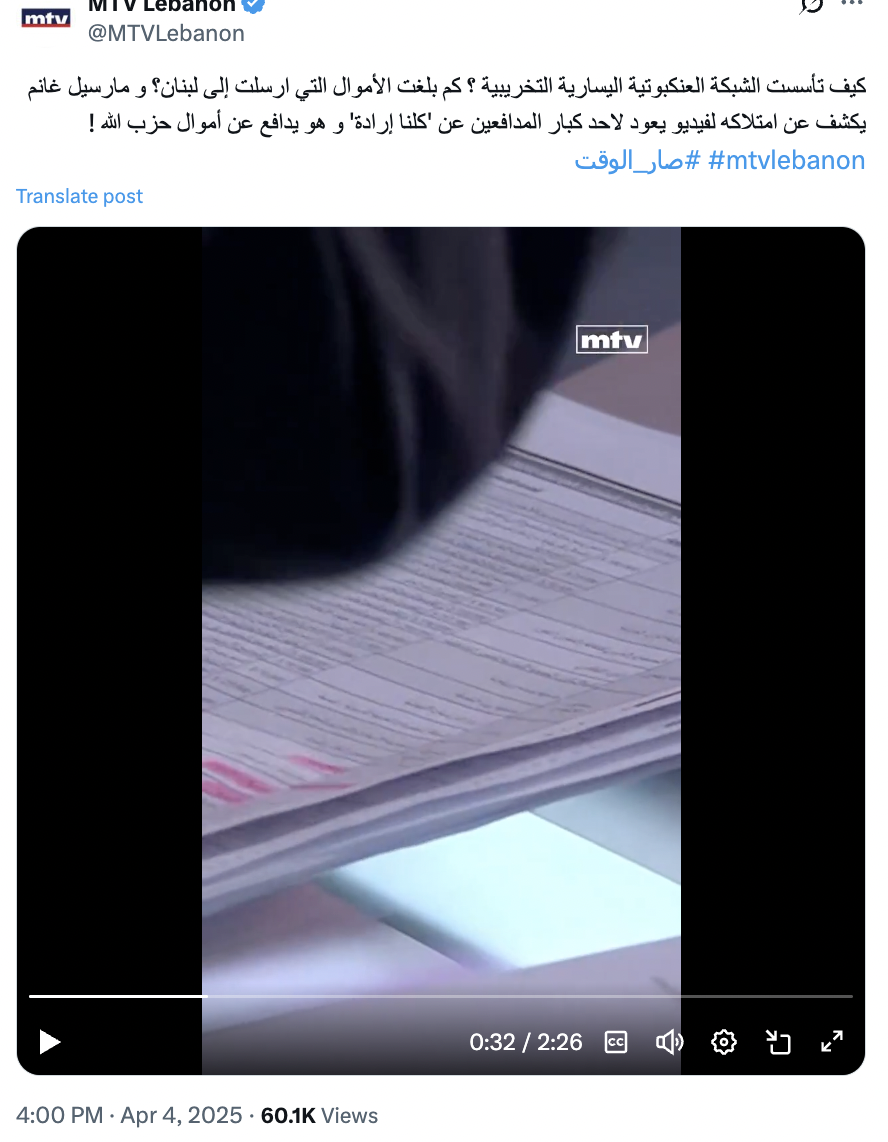
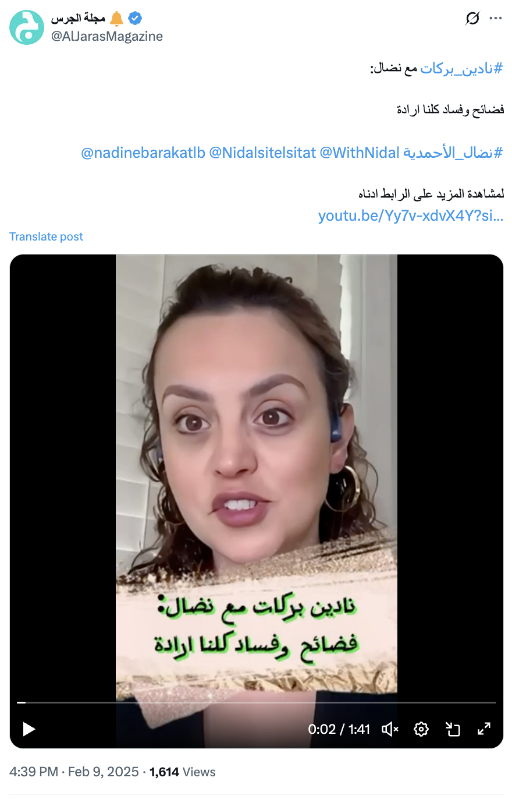
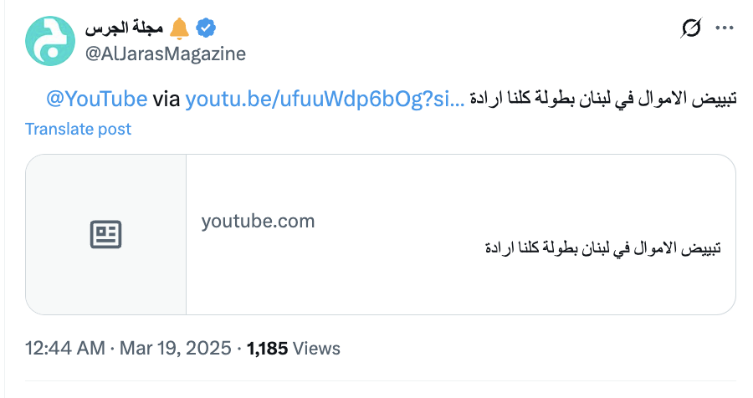
The campaign also included accounts belonging to other public figures, such as Maria Malouf (@bilarakib), who resides in the United States and supports the American right wing—as indicated by her photo with Donald Trump—and is also a supporter of the Saudi regime.
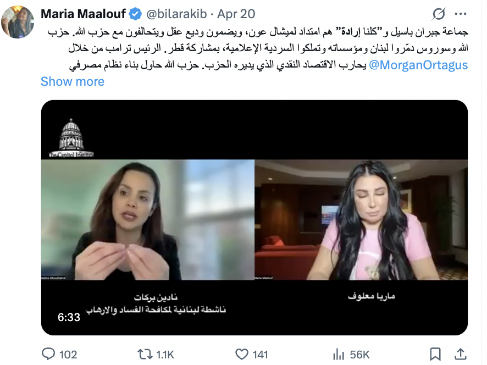
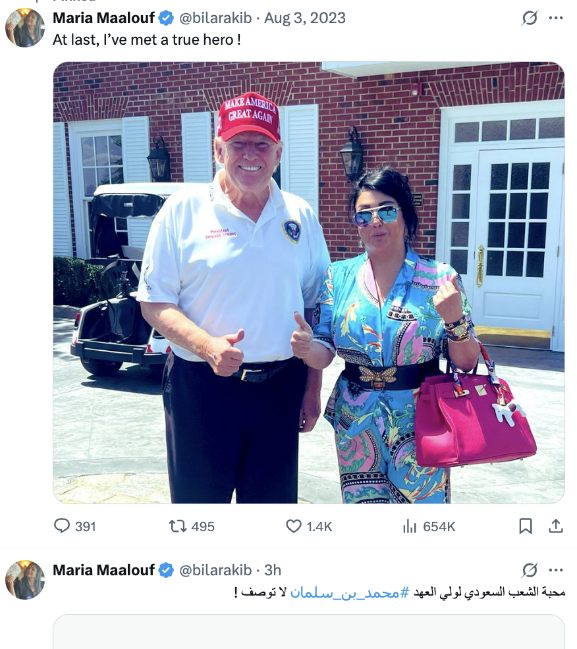
Writer As'ad AbuKhalil also contributed to promoting the campaign’s narrative, accusing the Kulluna Irada of being anti-communist and engaging in a Cold War stance aligned with NATO. AbuKhalil reshared a post by Marie-Lina Hraoui (@Hraoui17), a supporter of Samir Geagea, who is known for his opposition to Hezbollah and Iranian influence in Lebanon.
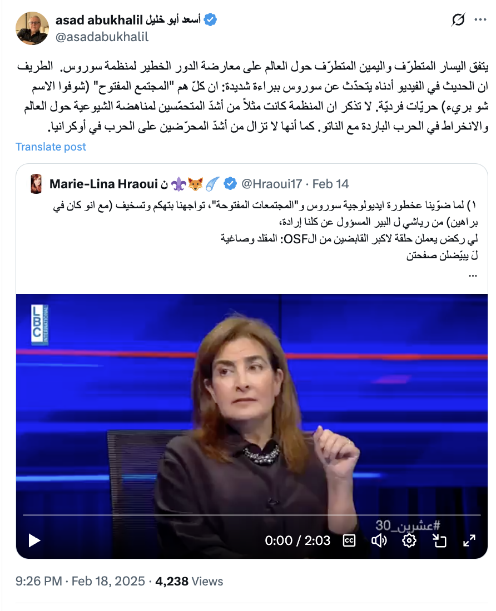
Marie-Lina Hraoui actively engages with MTV Lebanon’s account and adopts the same rhetoric of incitement, promoting hate and repression against Daraj and Megaphone.
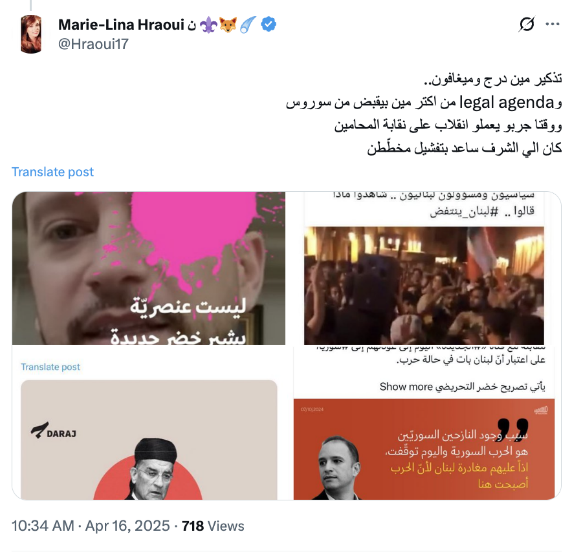
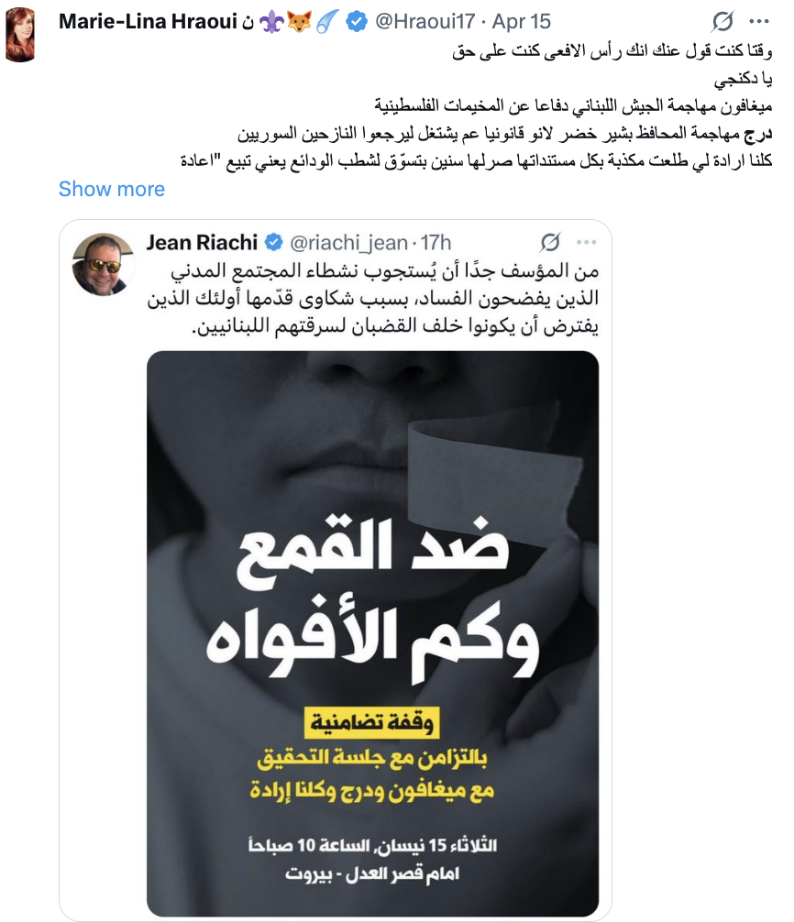
Some accounts supportive of Hezbollah also participated in the campaign, such as the account @mohamadkazzan, whose archive reveals older posts defending Asma al-Assad, wife of former Syrian President Bashar al-Assad.
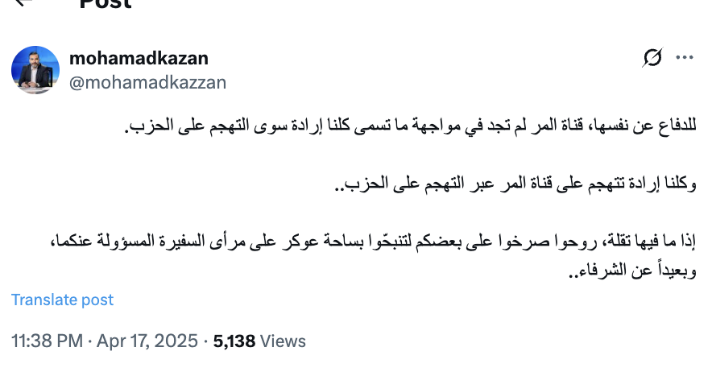
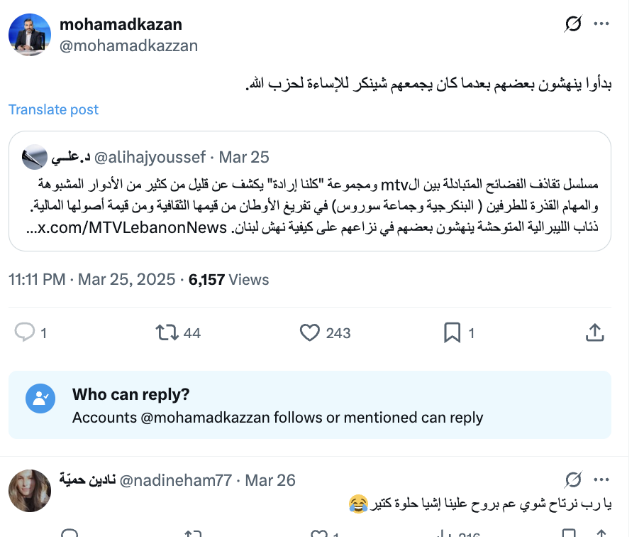
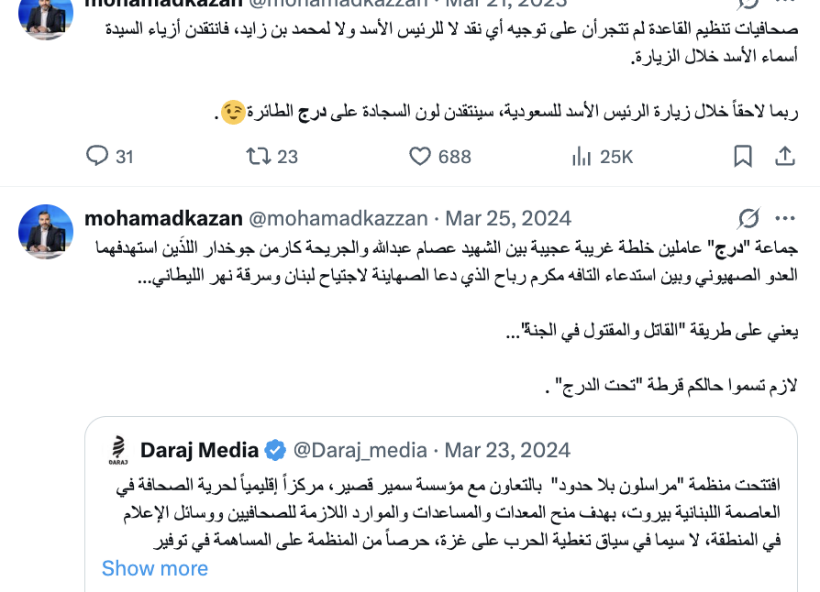
The campaign targeting Daraj, Megaphone and the organization Kulluna Irada thus brought together actors from across Lebanon’s political spectrum — from the Free Patriotic Movement, supporters of Samir Geagea, and backers of the U.S. right wing and the Saudi regime, to even supporters of Hezbollah.
Contradicting Accusations
The convergence of Lebanon’s political rivals in launching the online campaign against Daraj, Megaphone, and Kulluna Irada was reflected in their posts, where each faction accused the media platforms of serving the agenda of the opposing side.
Among the widely circulated content on social media was a news item published by Siyasa Magazine and the newspaper Nidaa Al Watan—which supports the Lebanese Forces party—claiming that Daraj and Megaphone were funded by Moscow and linked to Bashar al-Assad.
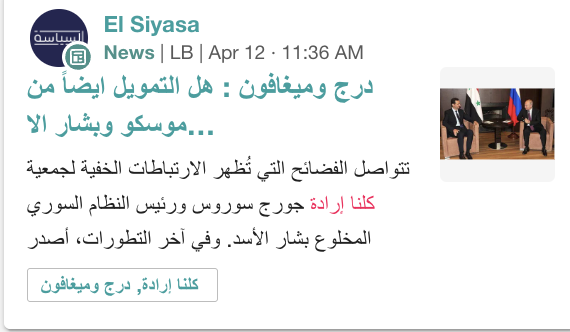
The post gained significant traction particularly on Facebook, where it was shared 4,370 times. It reached over 13,000 users via mobile devices and around 1,300 users via desktop.
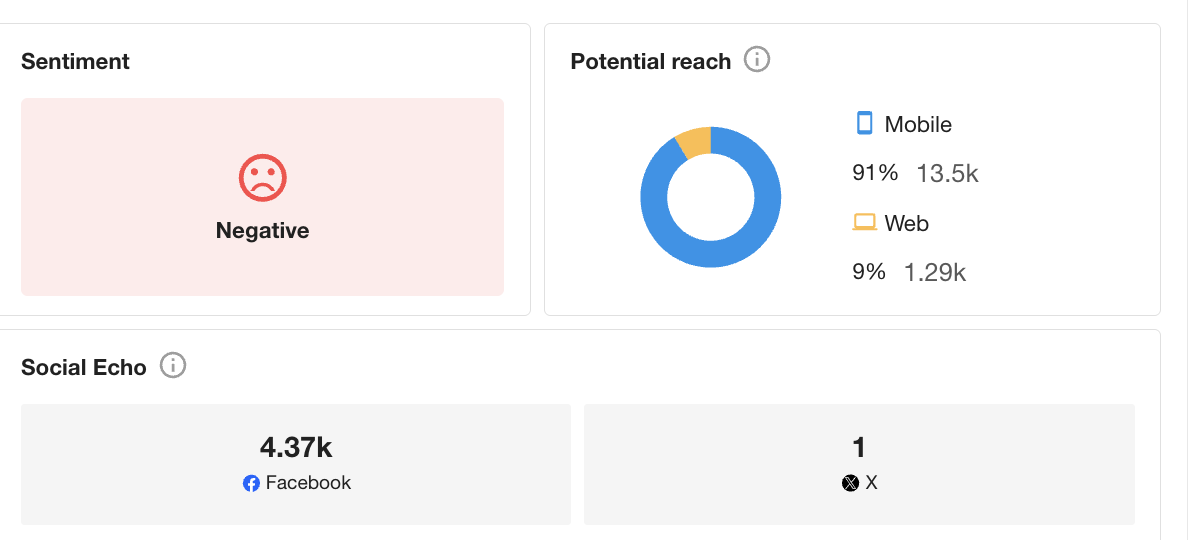
A post by the account @bilarakib, belonging to Maria Maalouf also gained significant traction. In it, she accused Kulluna Irada of being "an extension of Michel Aoun and allied with Hezbollah." The post was viewed by over 56,000 people, received approximately 1,040 shares and quotes, and attracted a large number of comments.
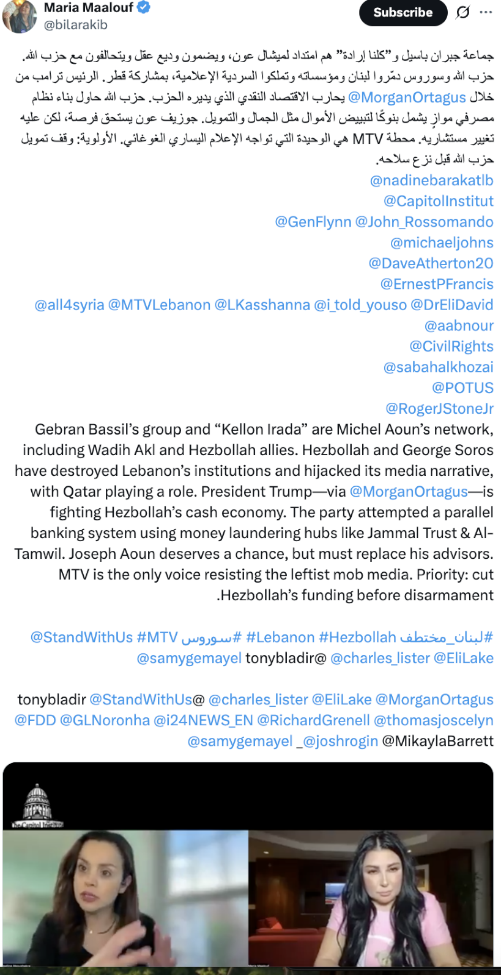
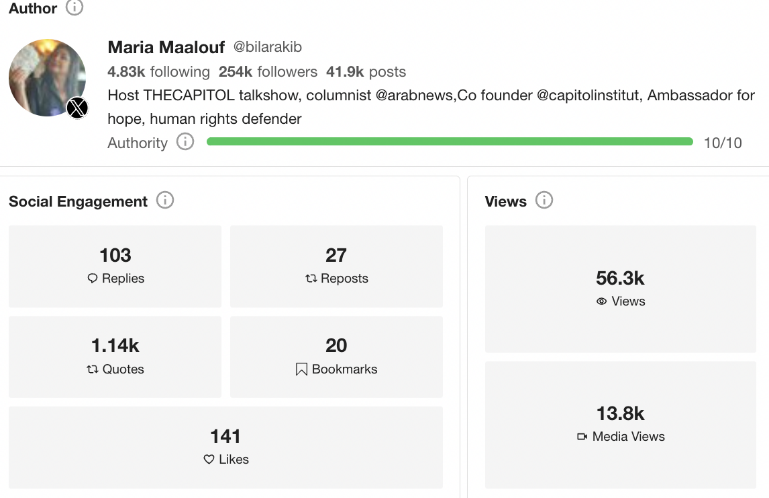
A post by Joseph Abu Fadel inciting against Kulluna Irada also gained wide traction. It was shared 70 times and reached an audience of over 82,000 views.
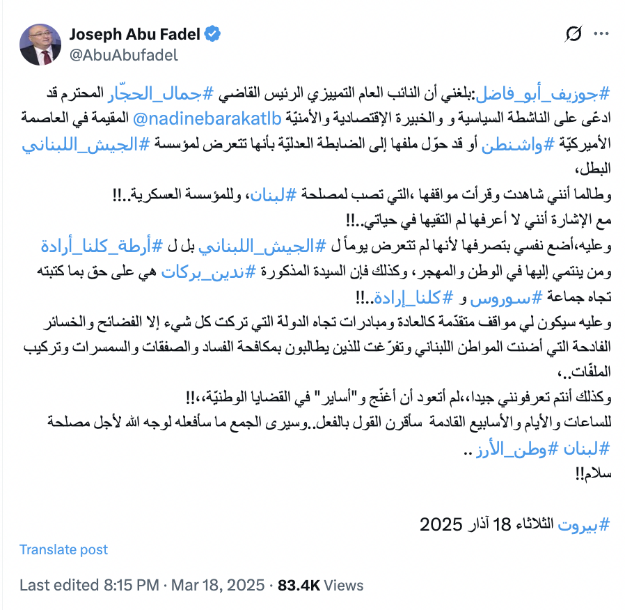
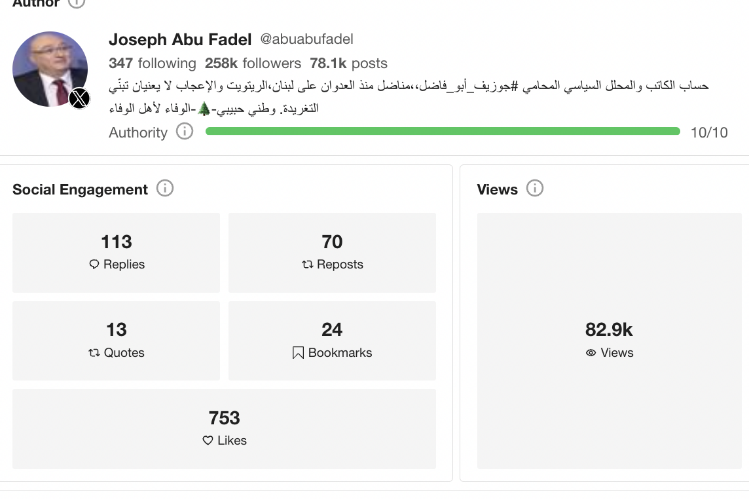
These widely circulated posts on social media, which garnered significant views from users, focused on leveling accusations against the platforms Daraj and Megaphone, as well as the organization Kulluna Irada—without providing any supporting evidence.
Prepared by: Ibrahim Hilal